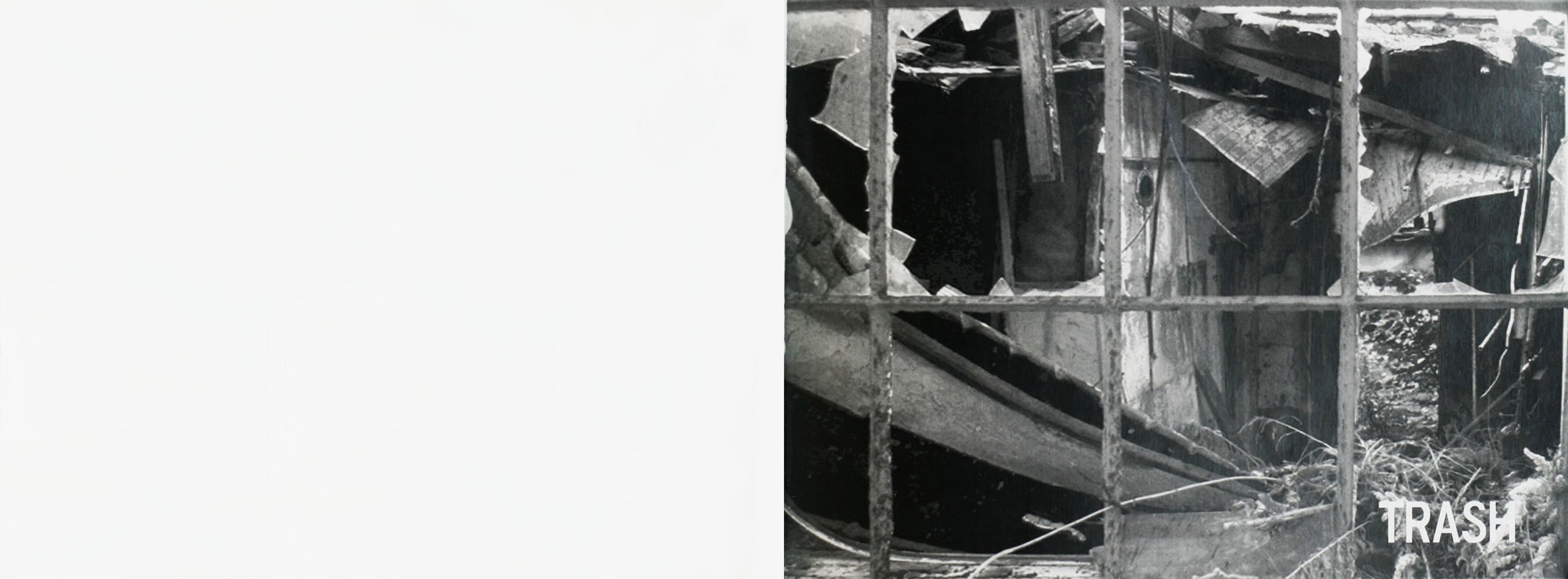
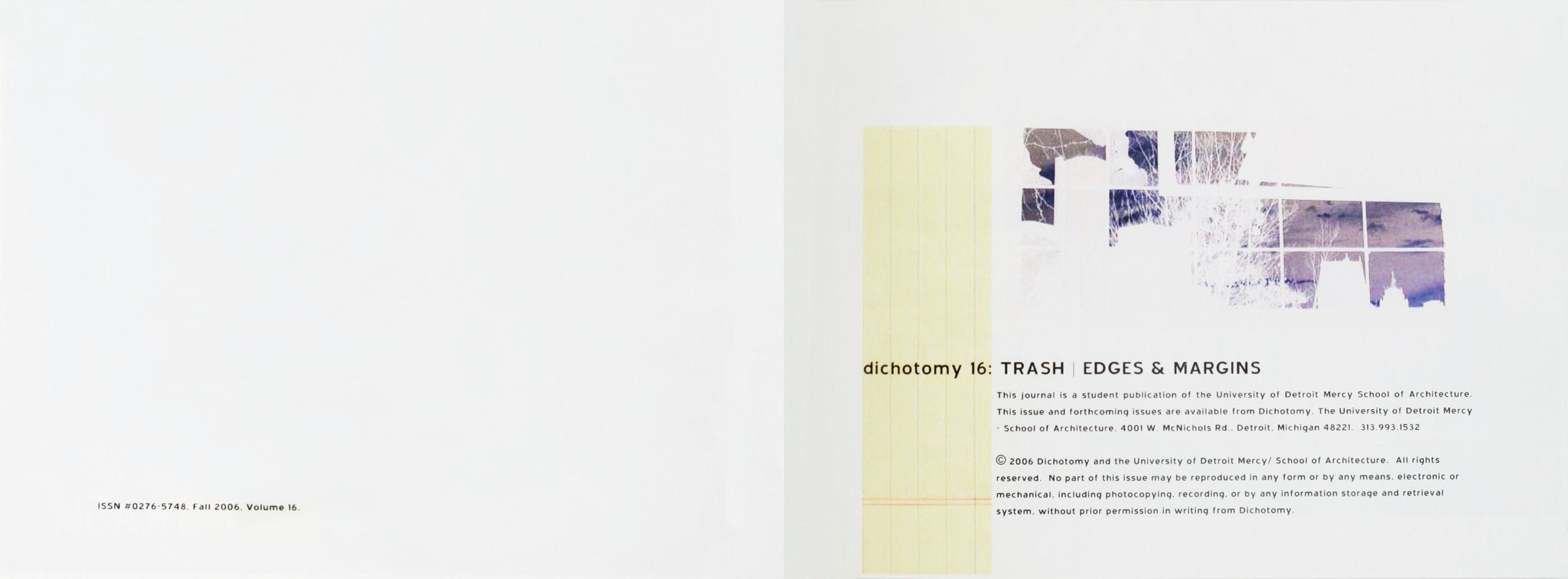
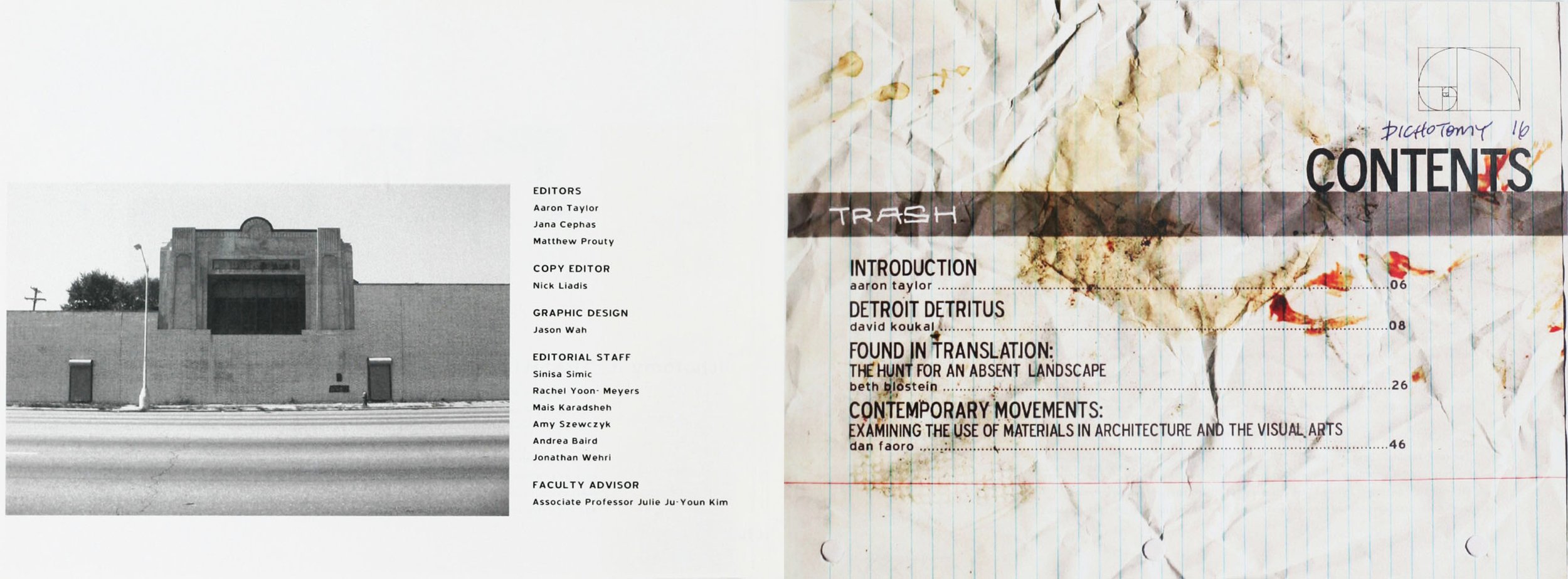
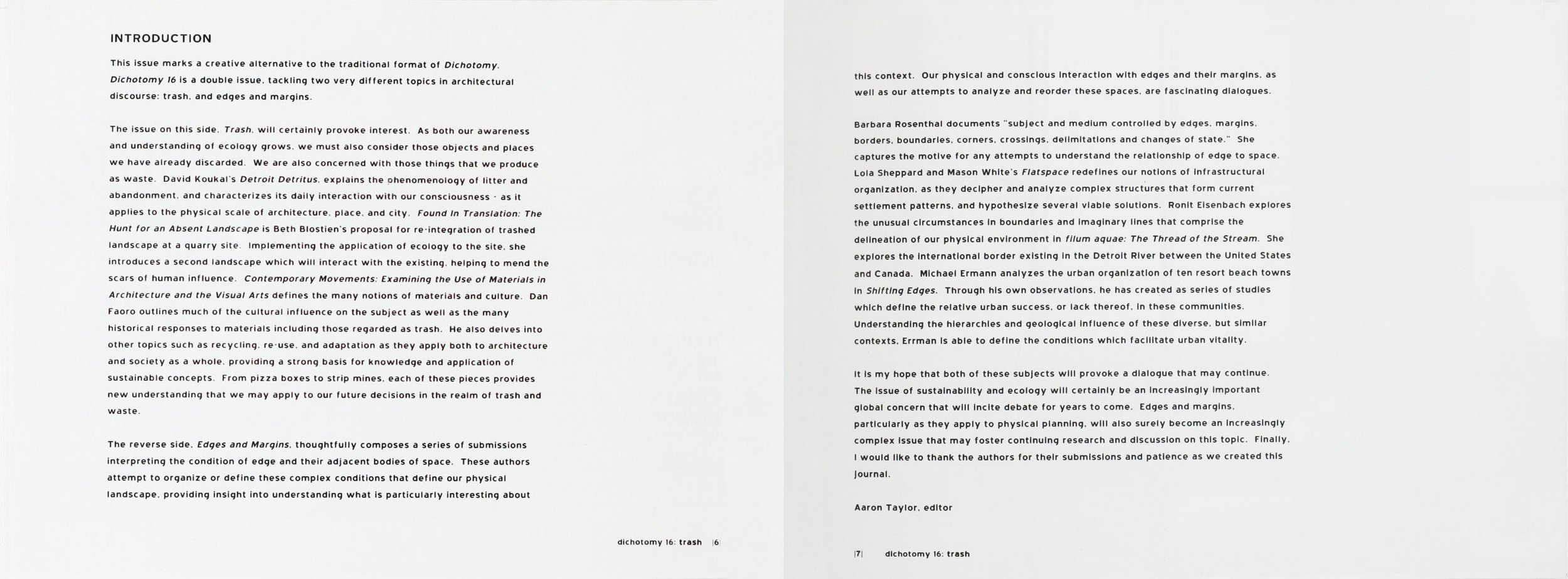
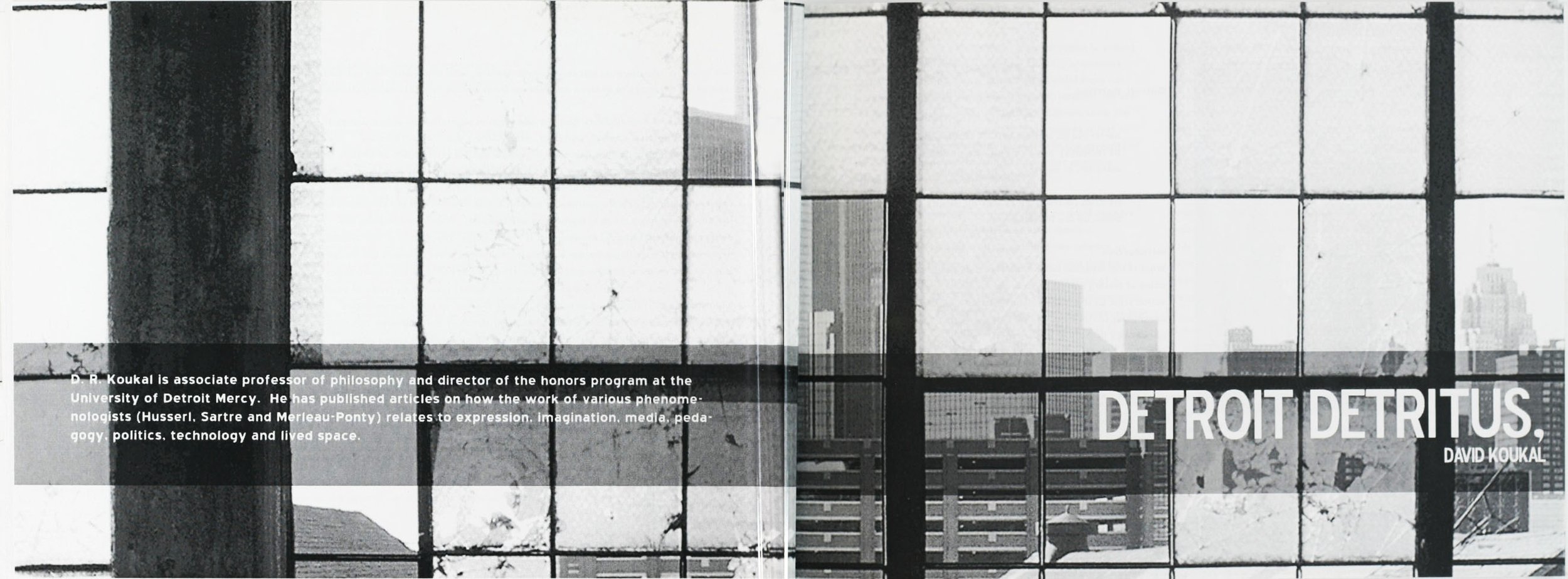

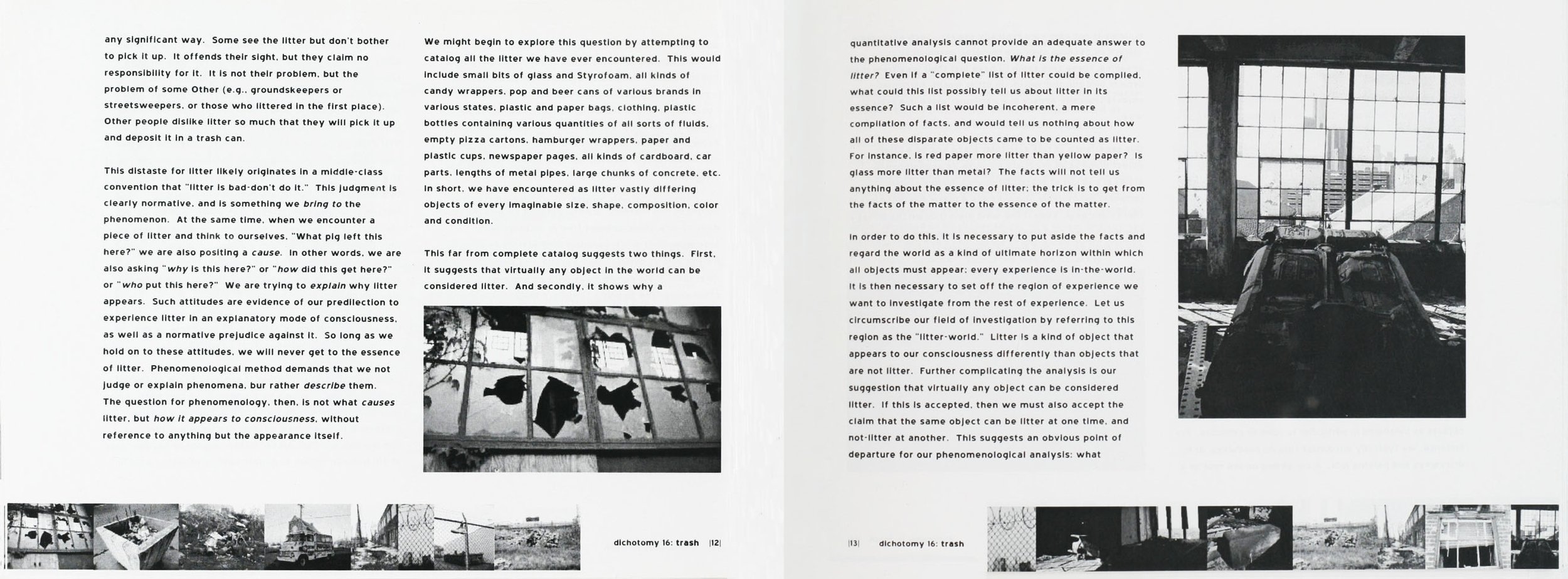
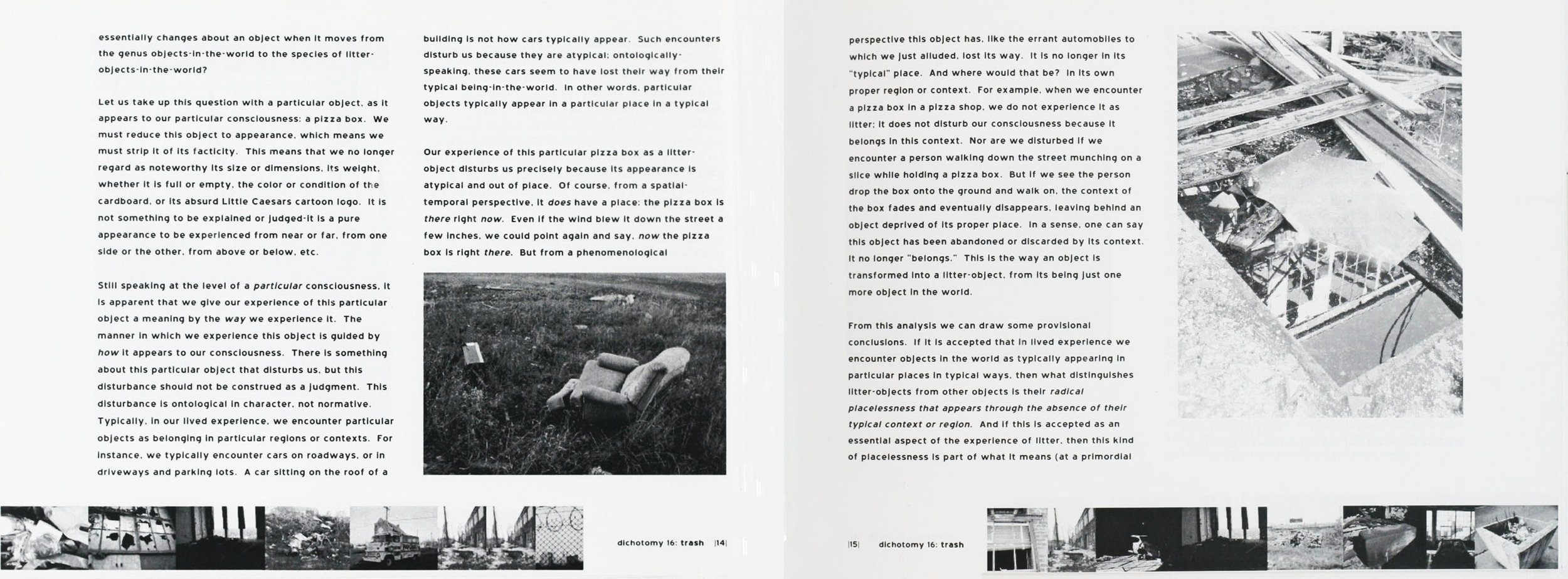
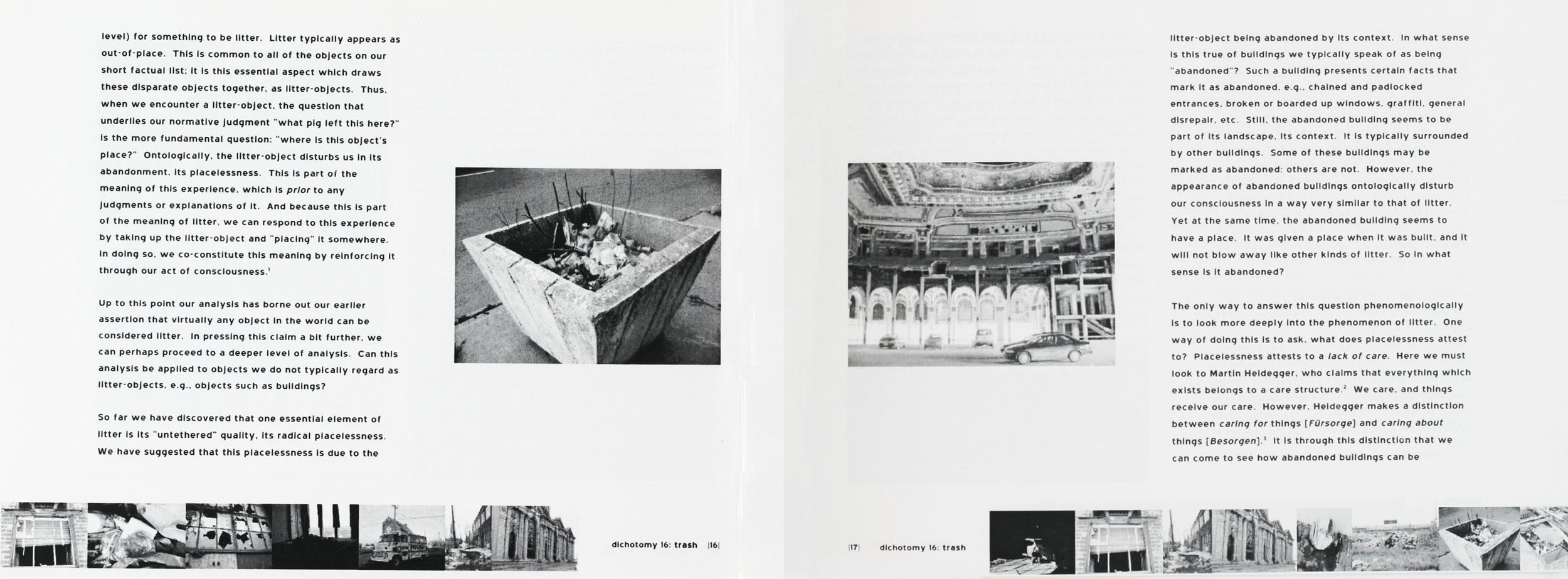
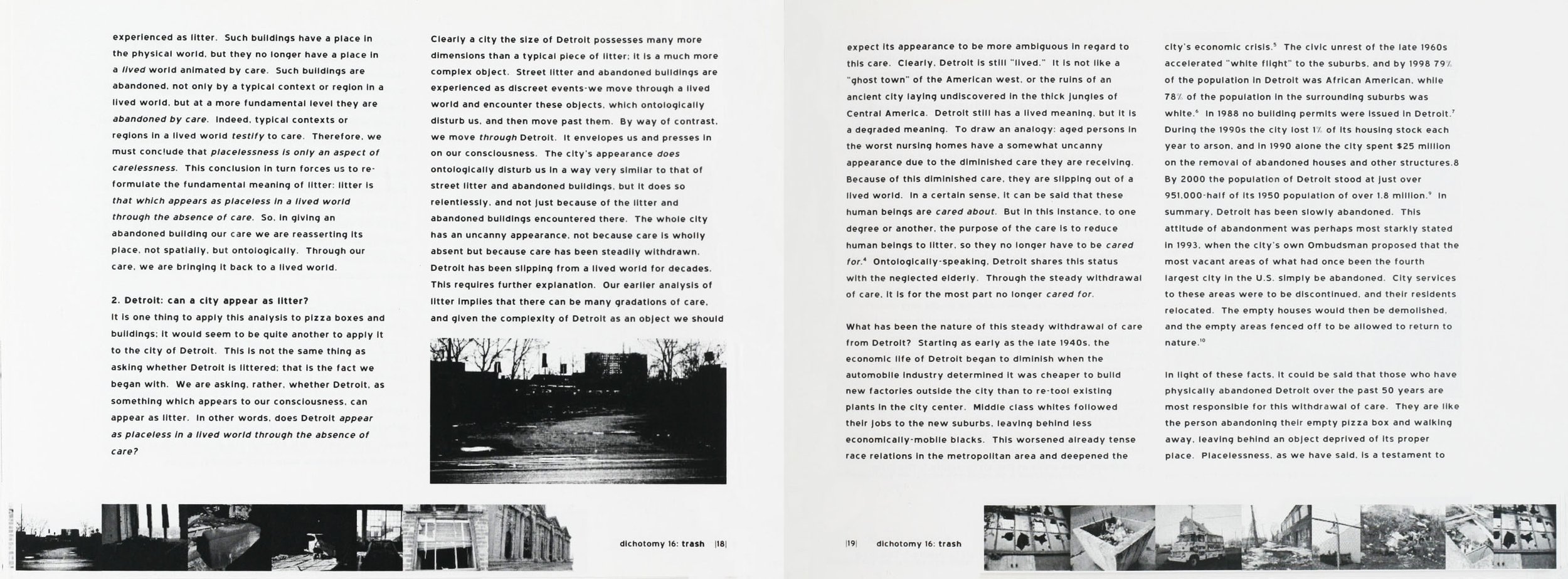


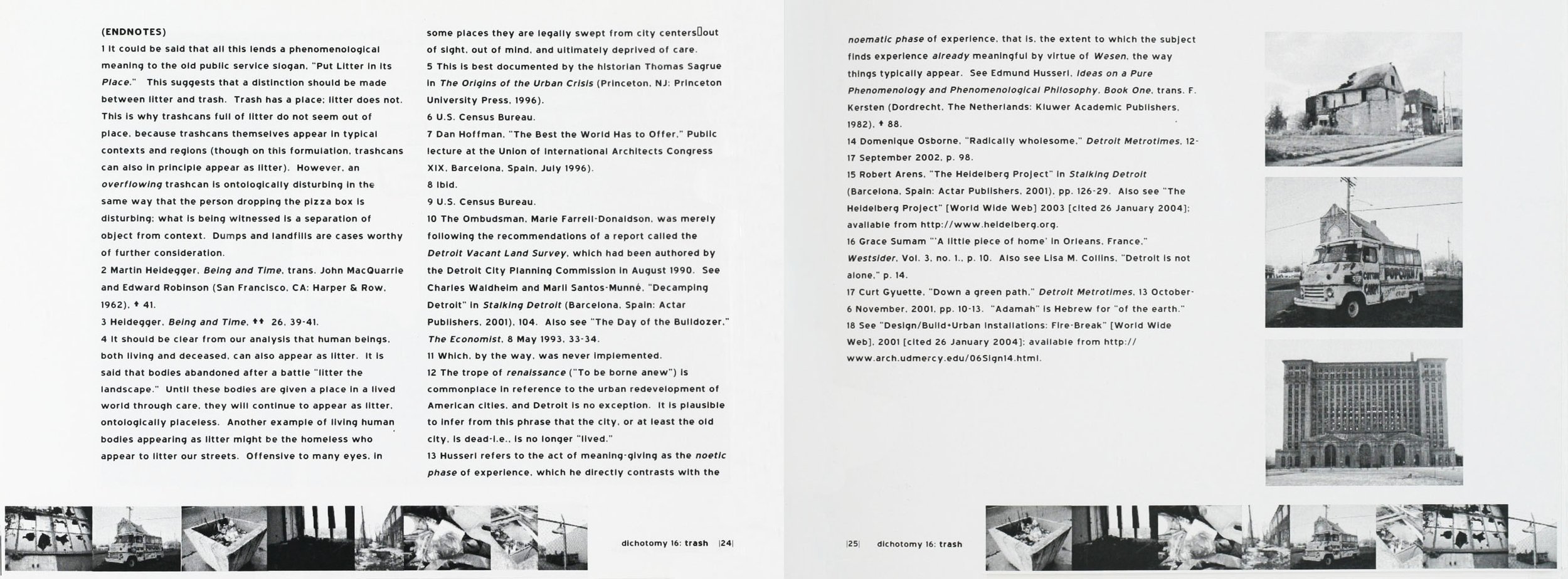


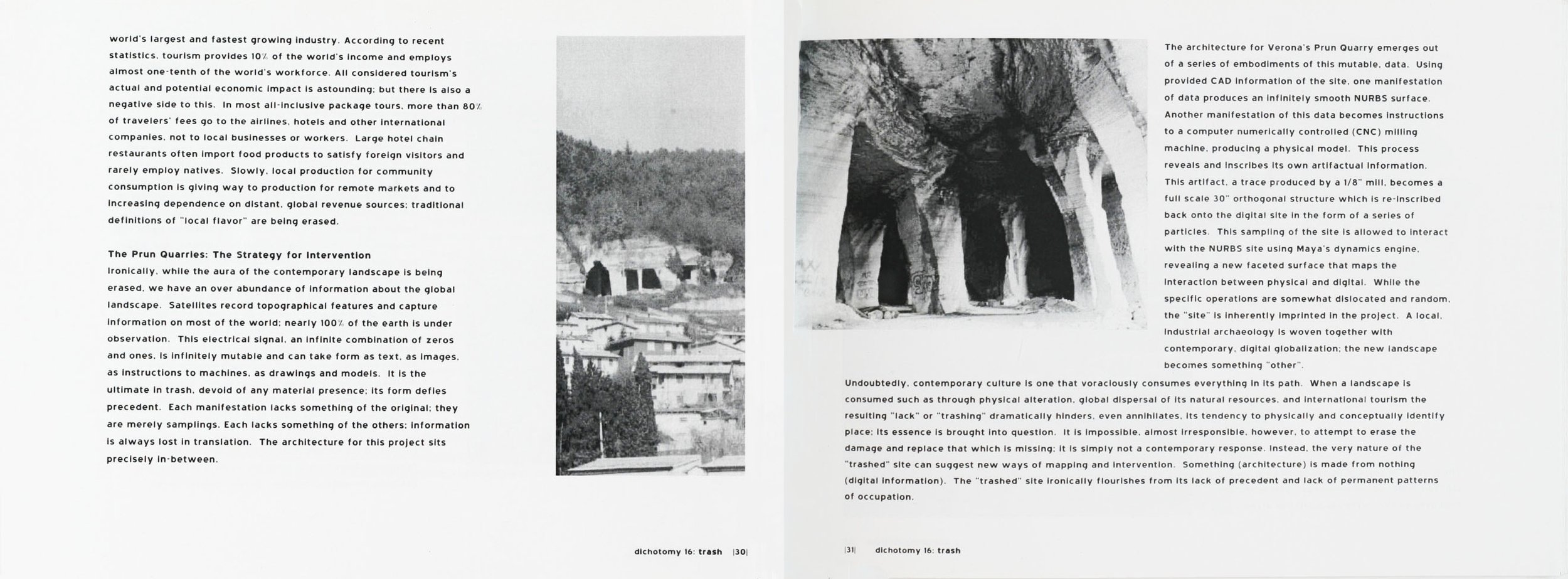
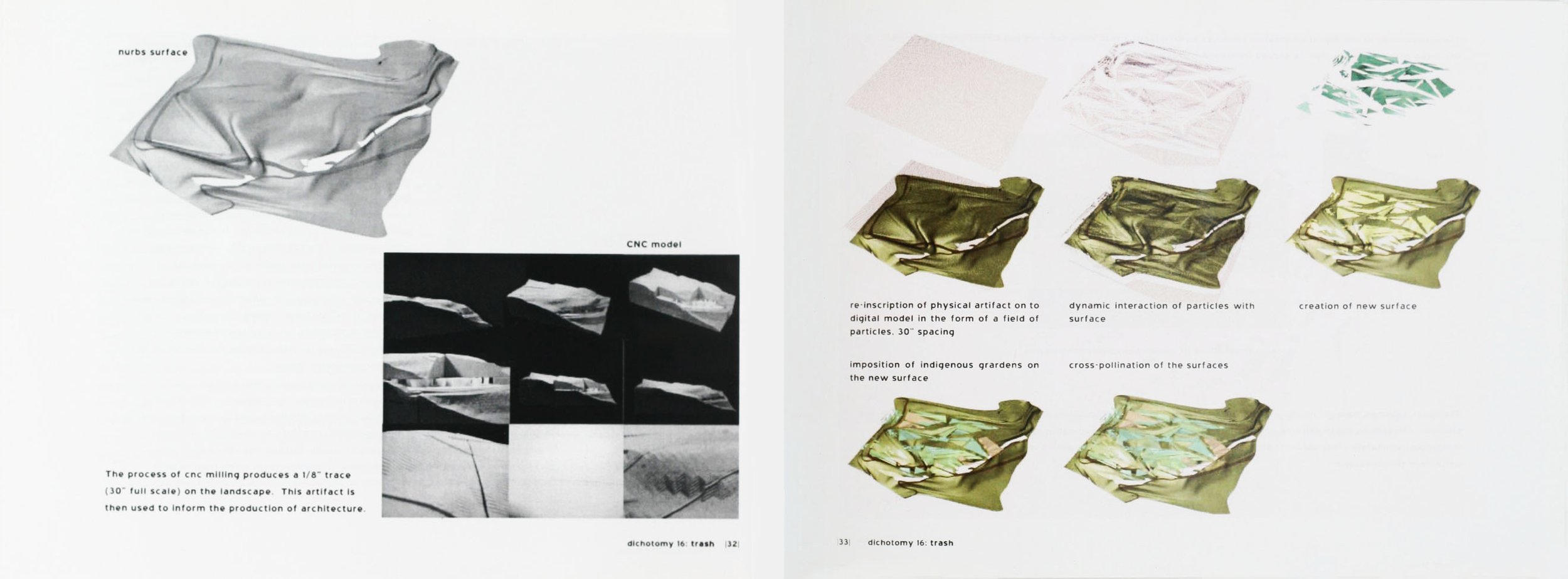
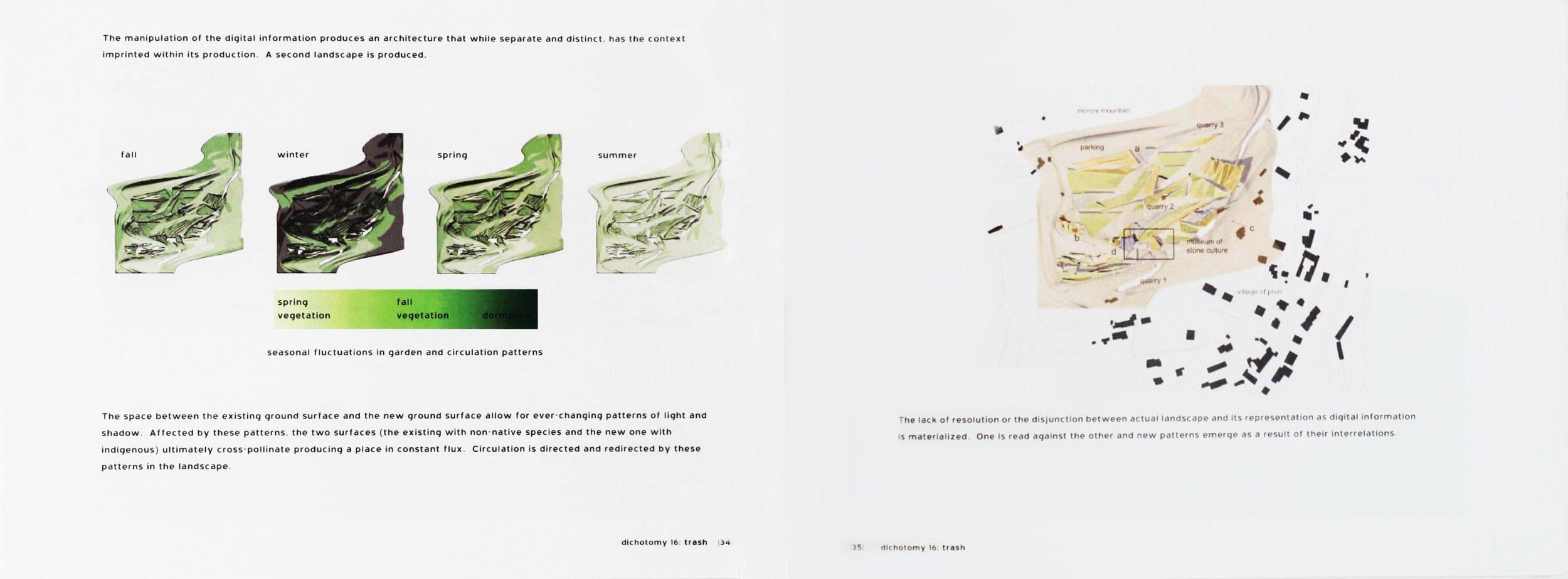

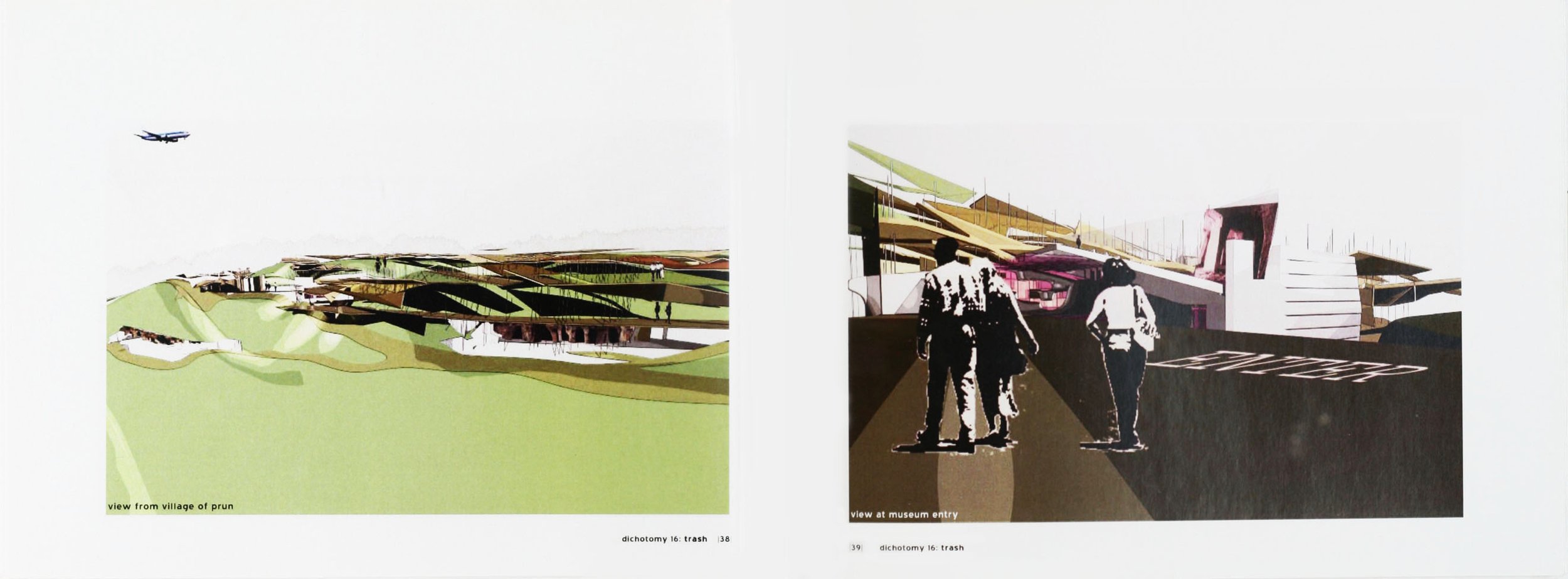
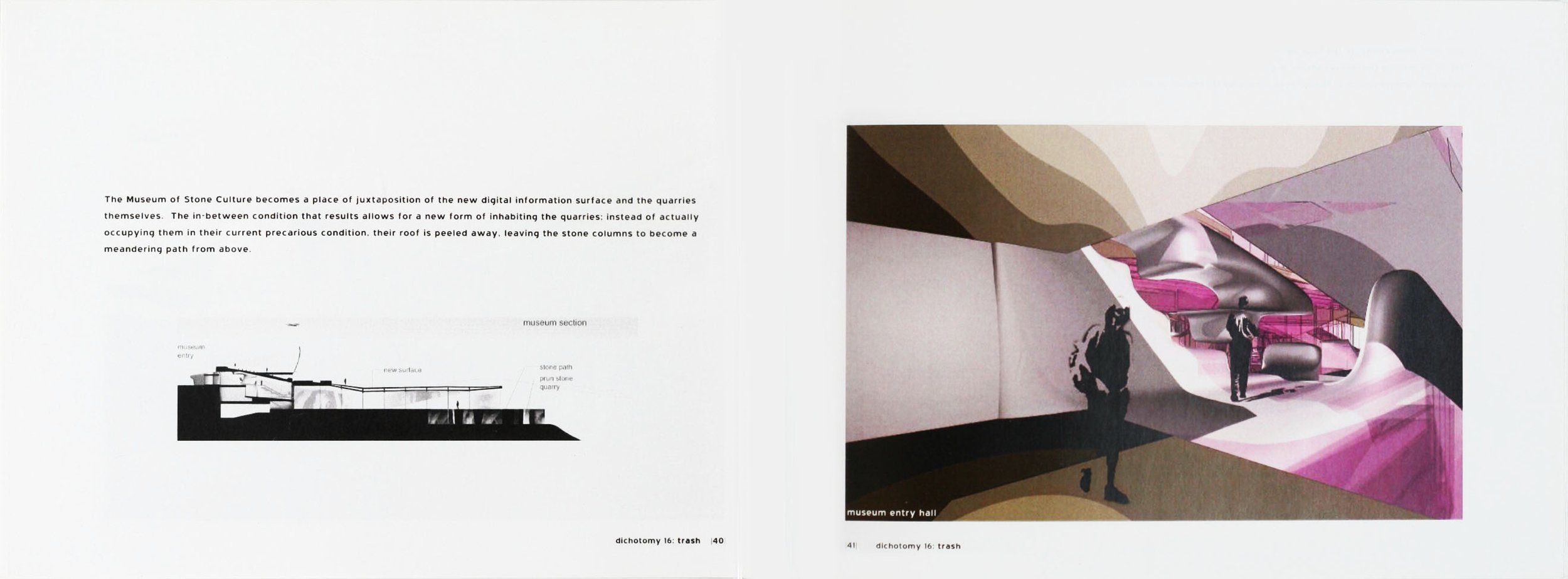
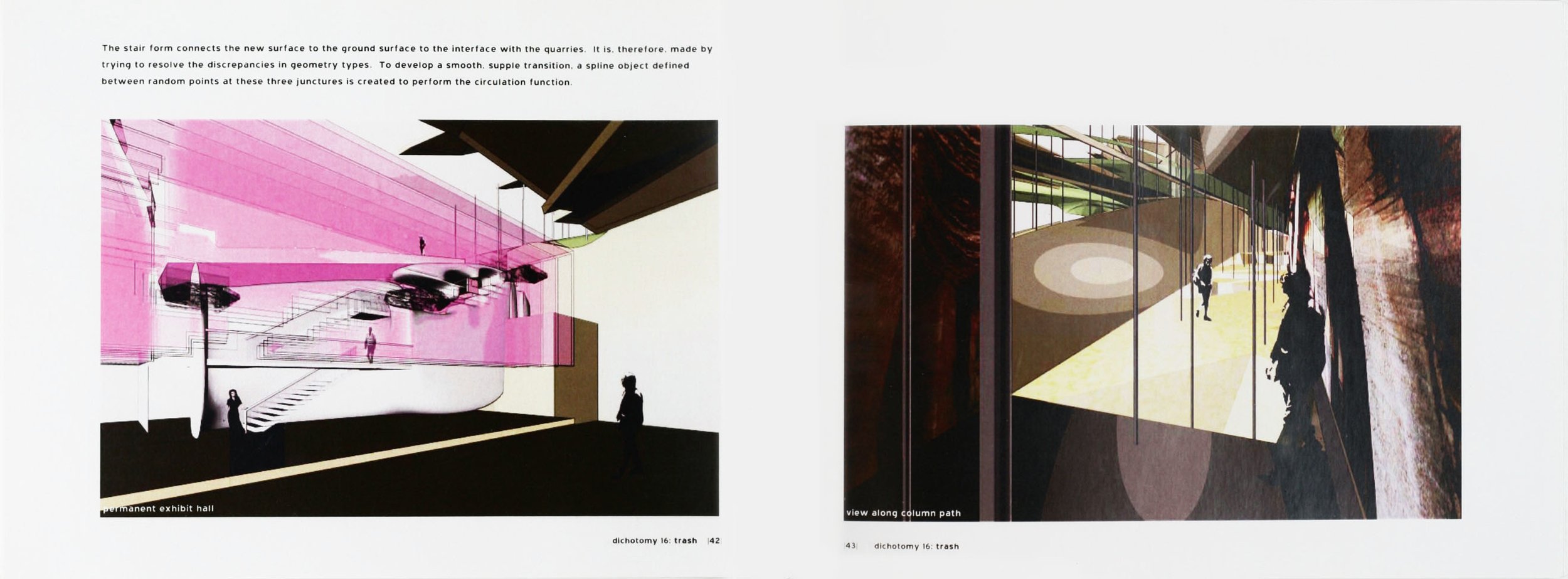

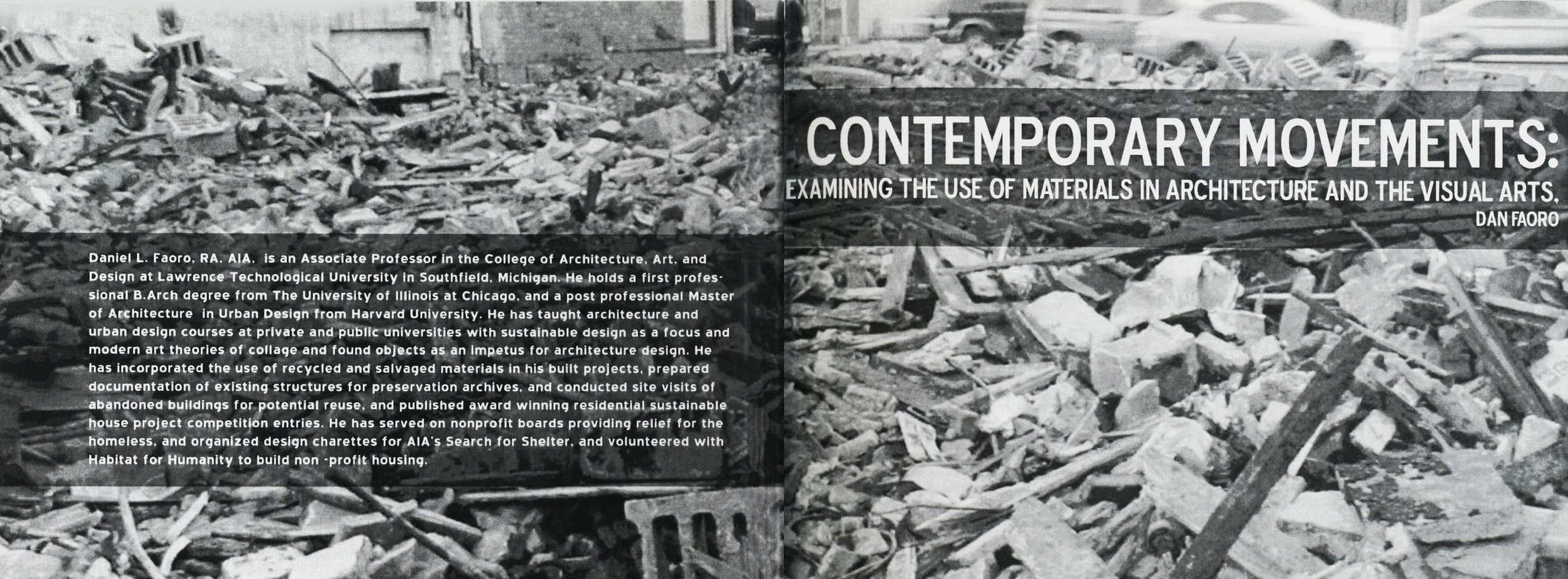
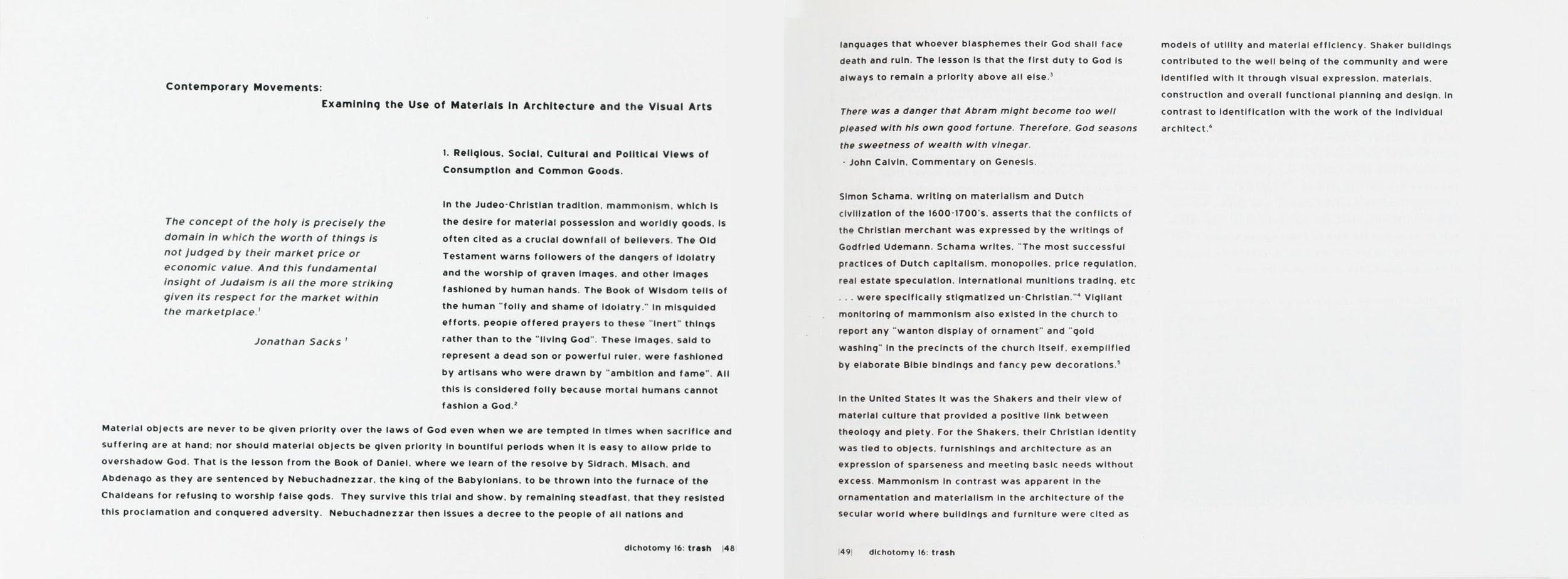
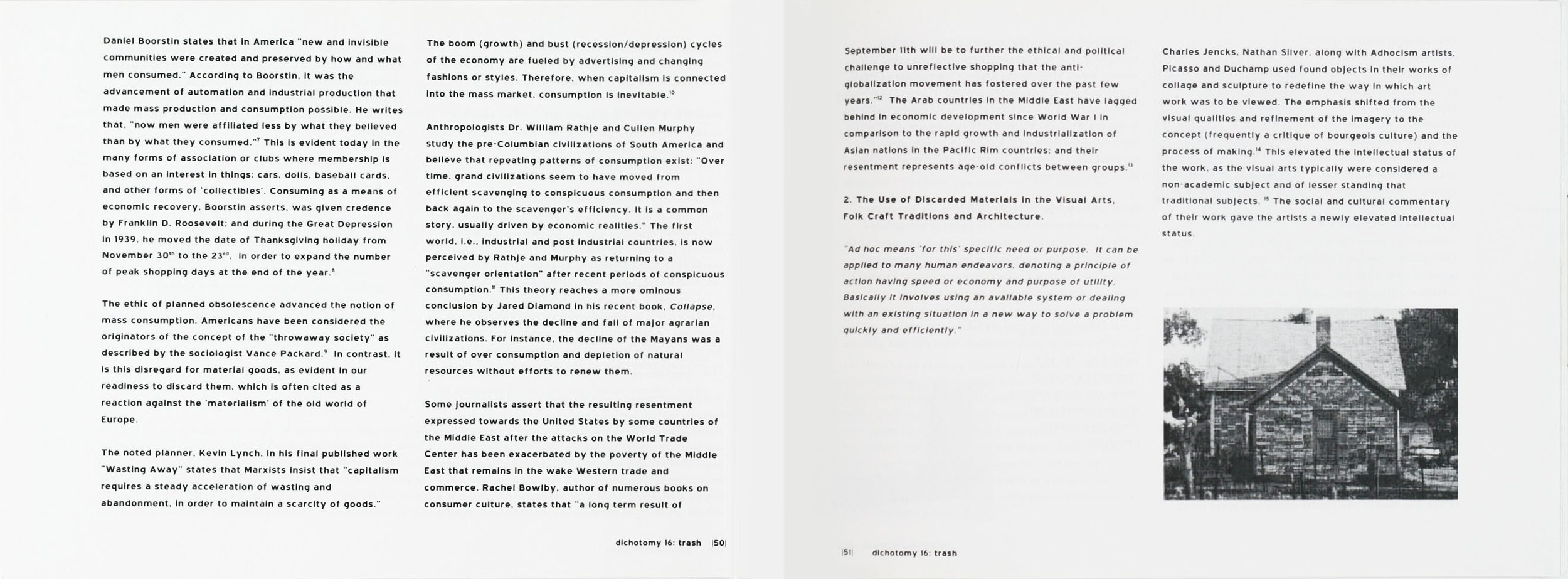
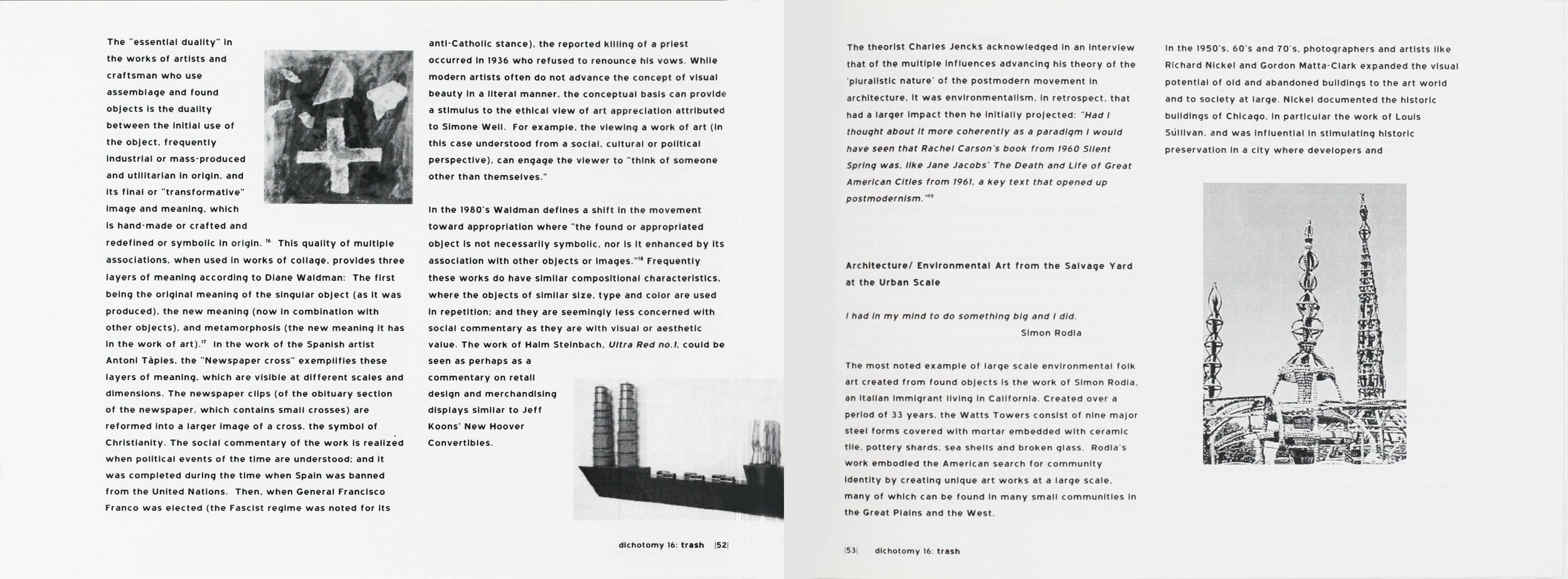
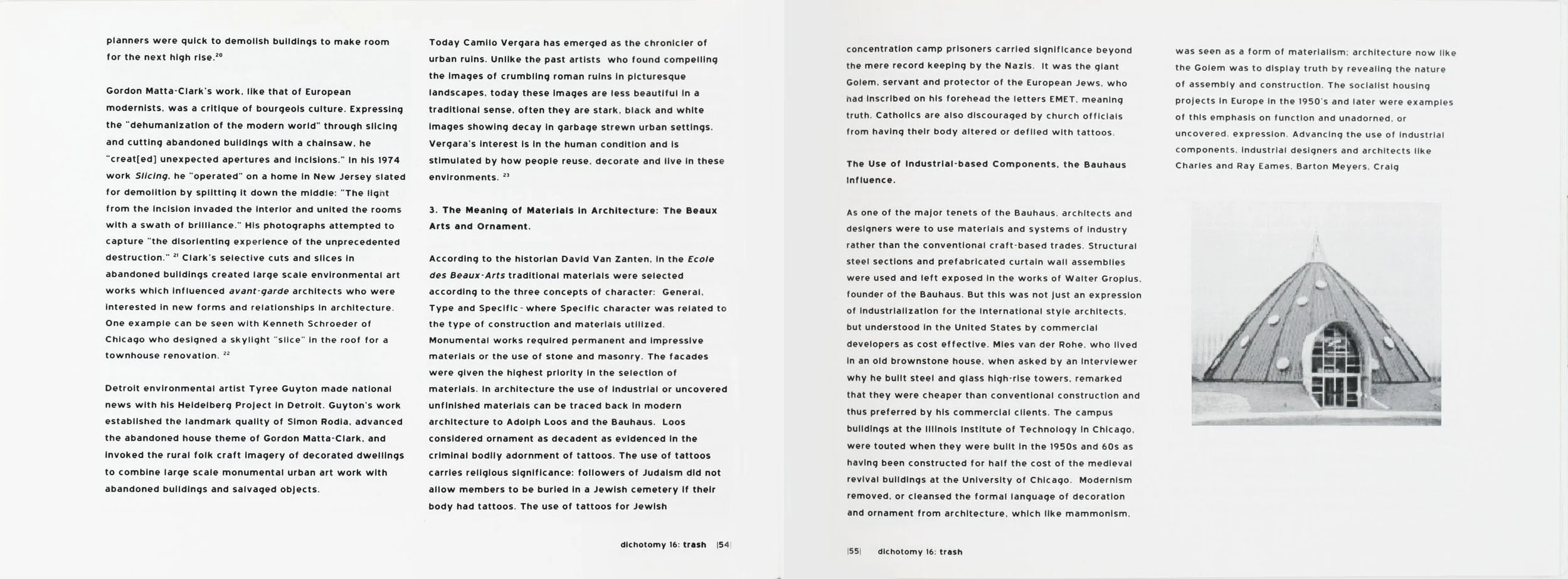
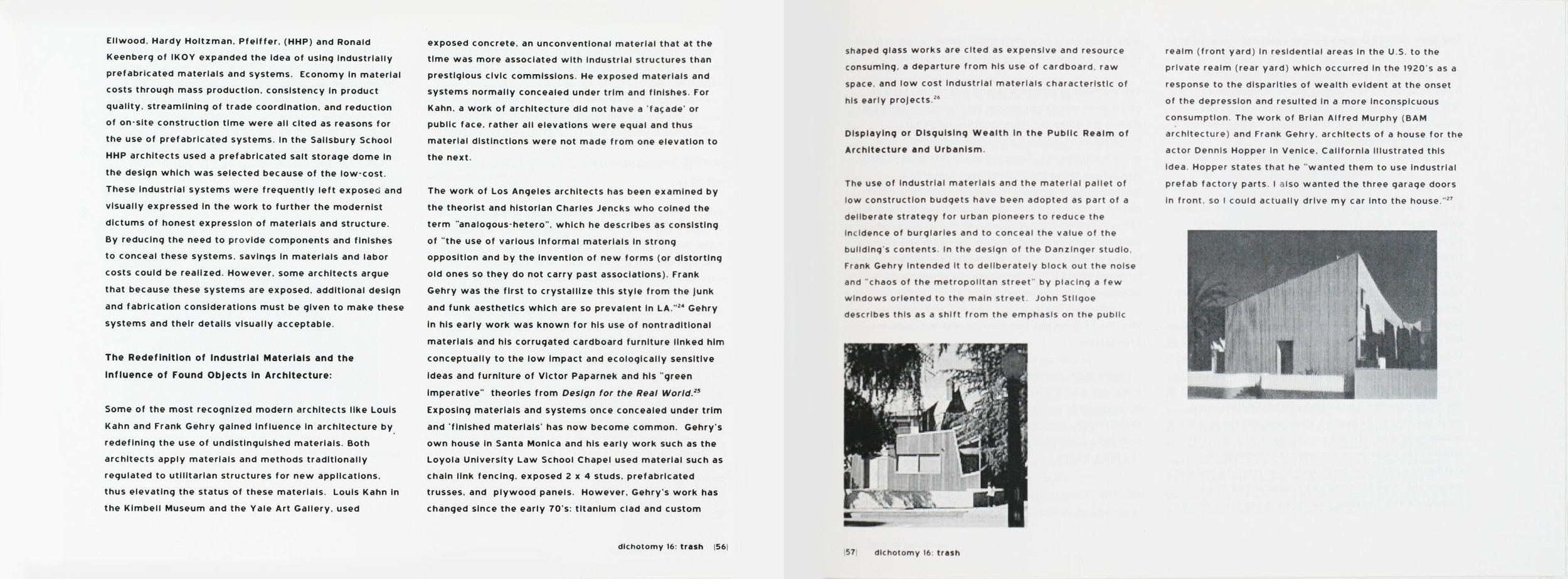

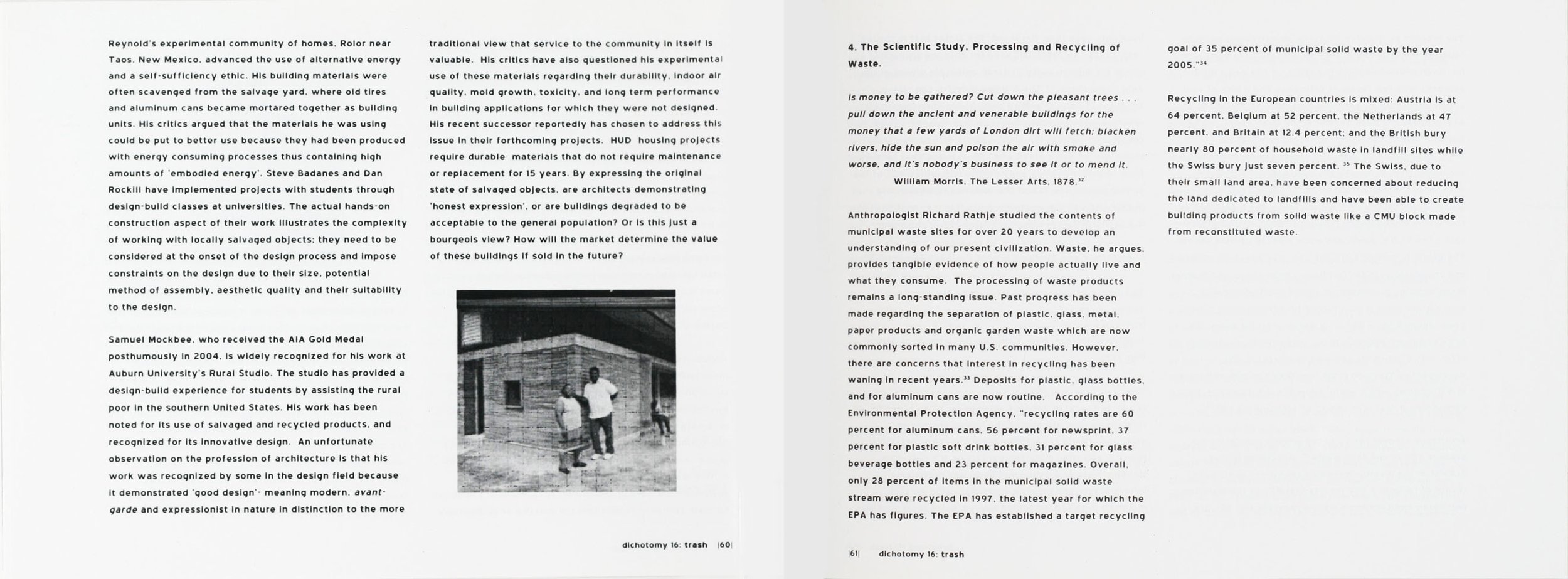
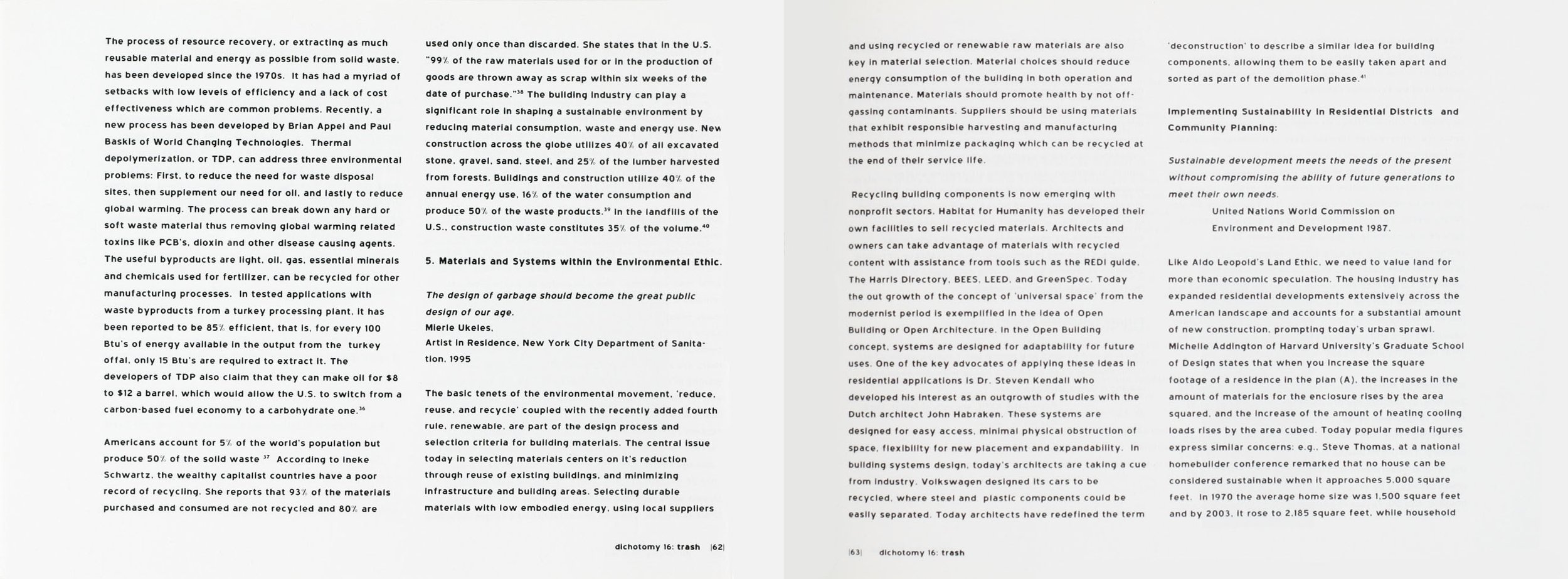


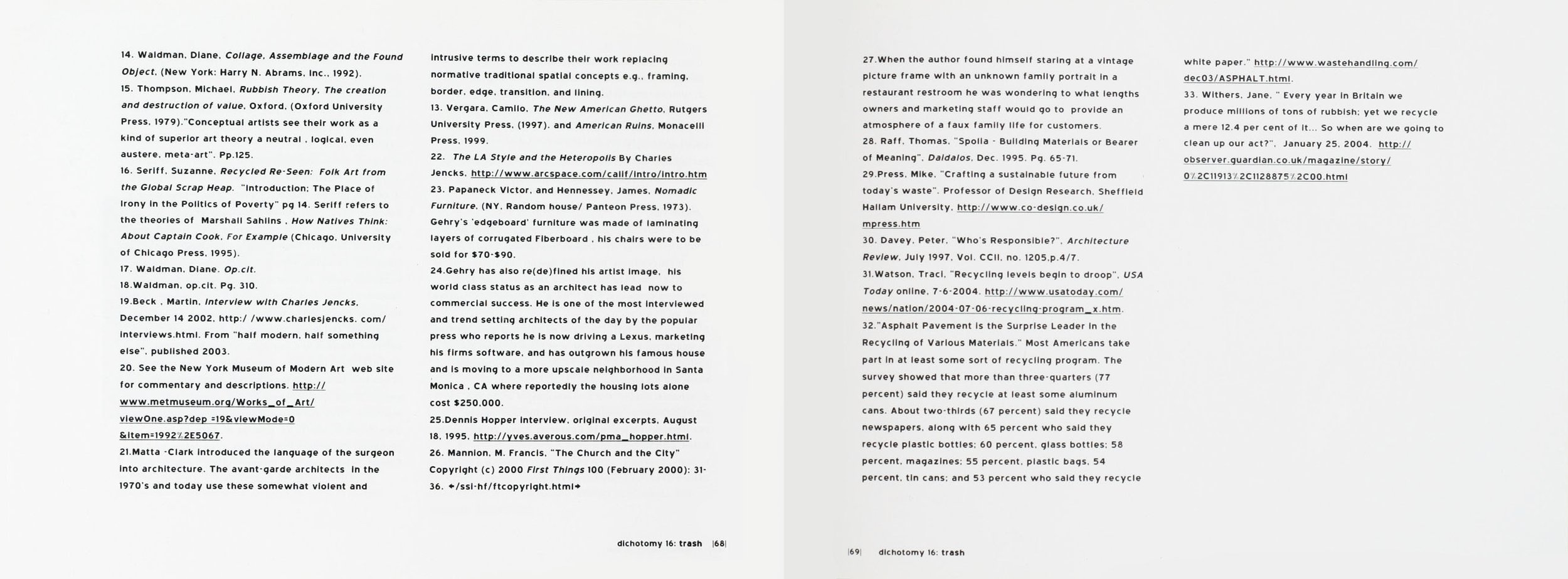
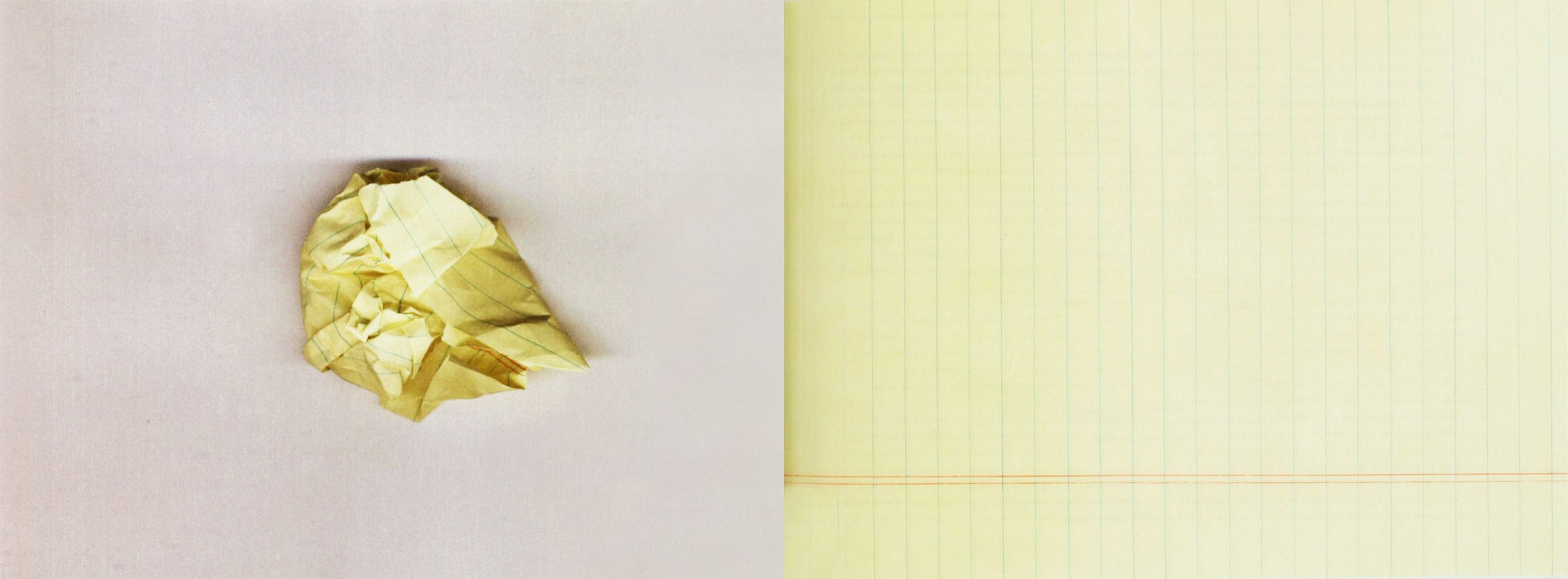


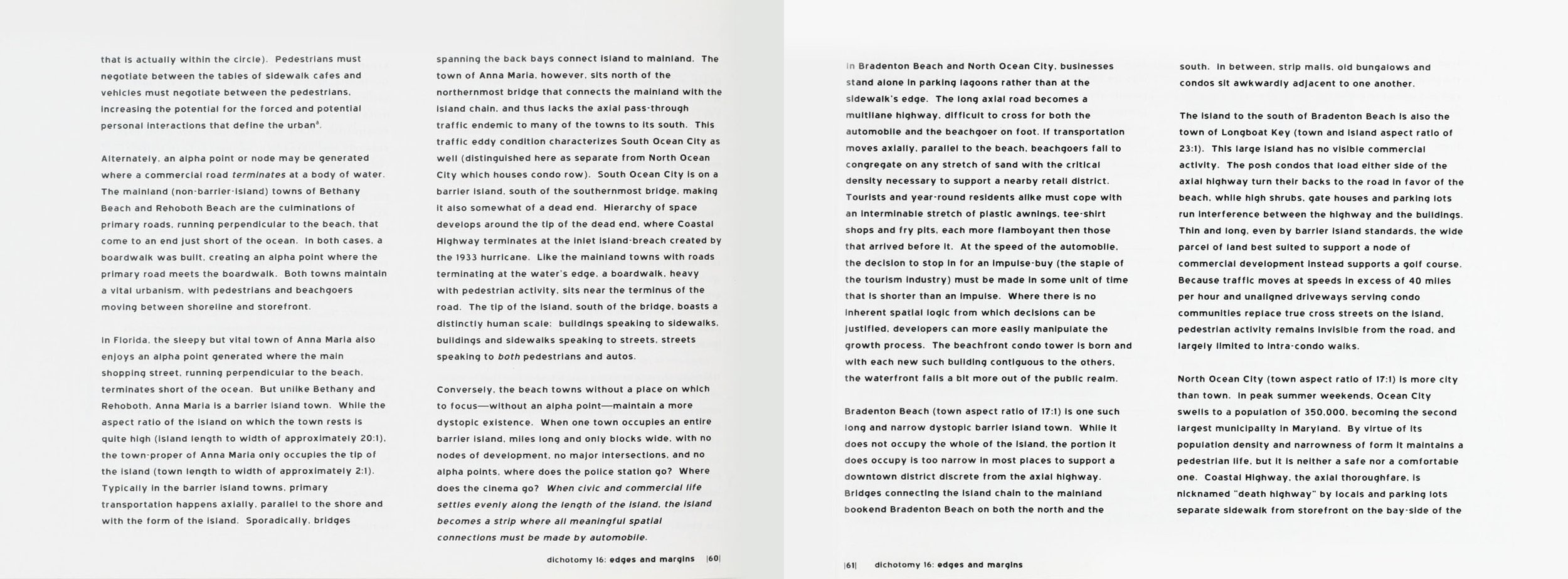

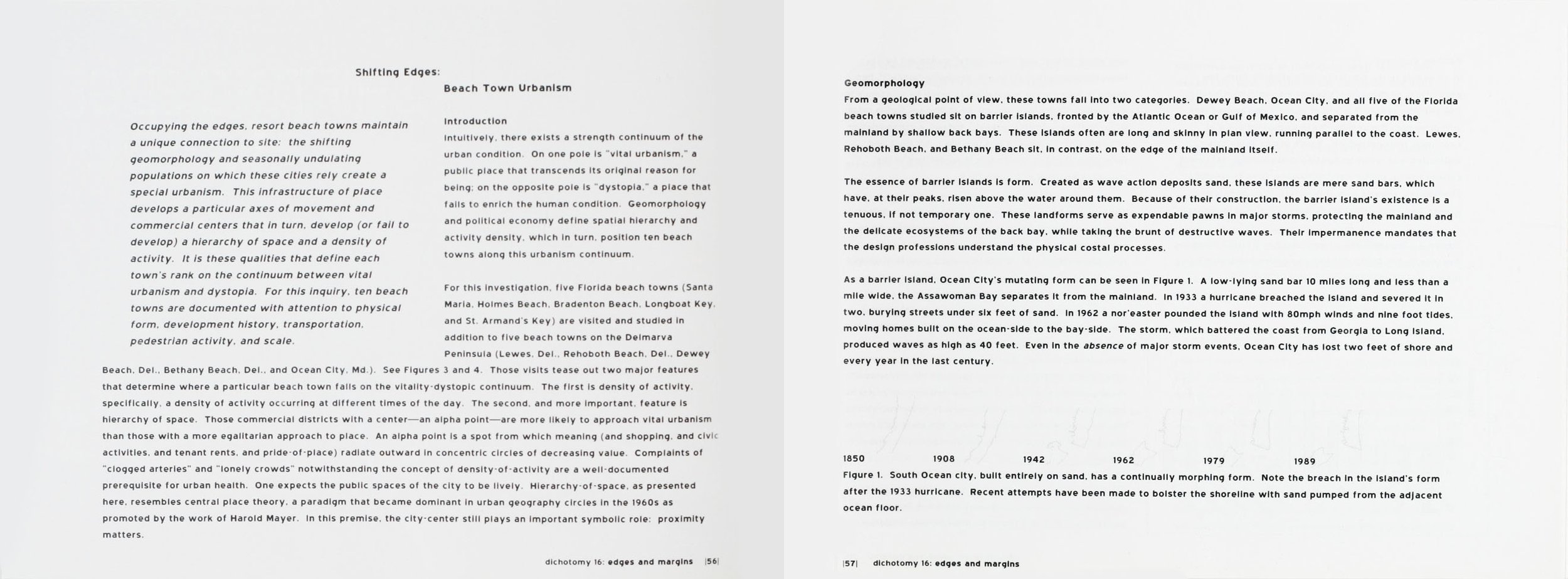
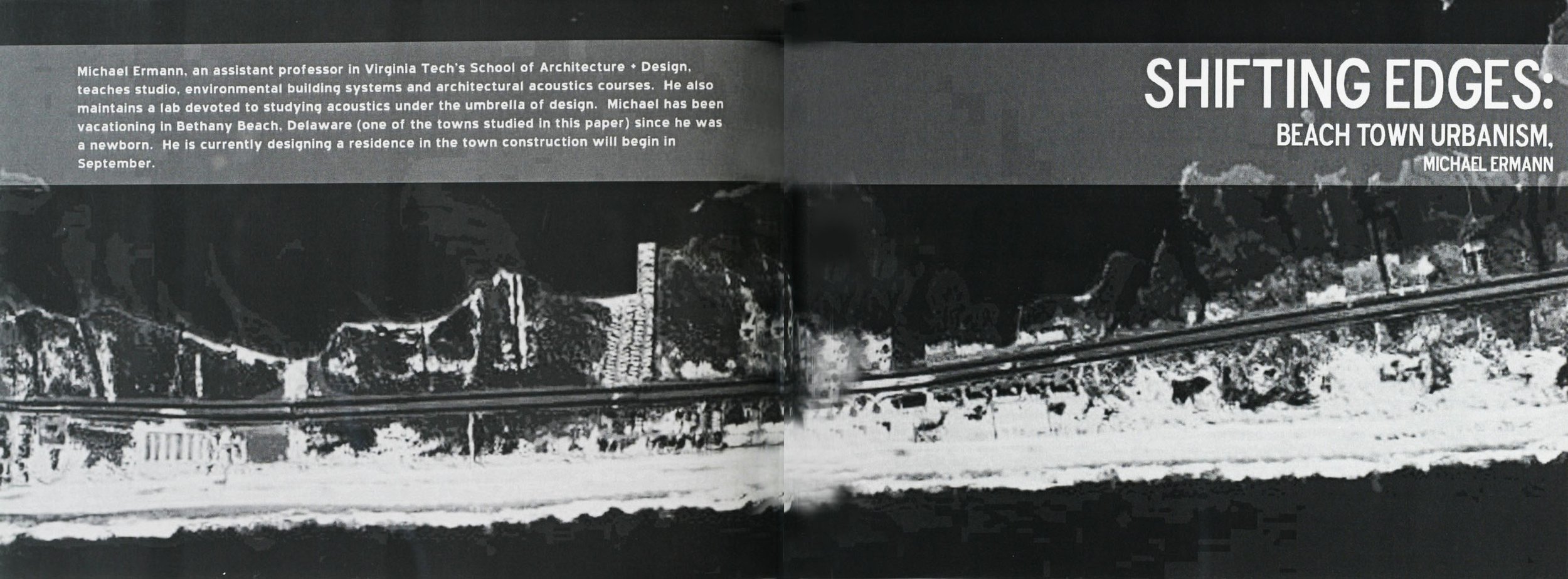
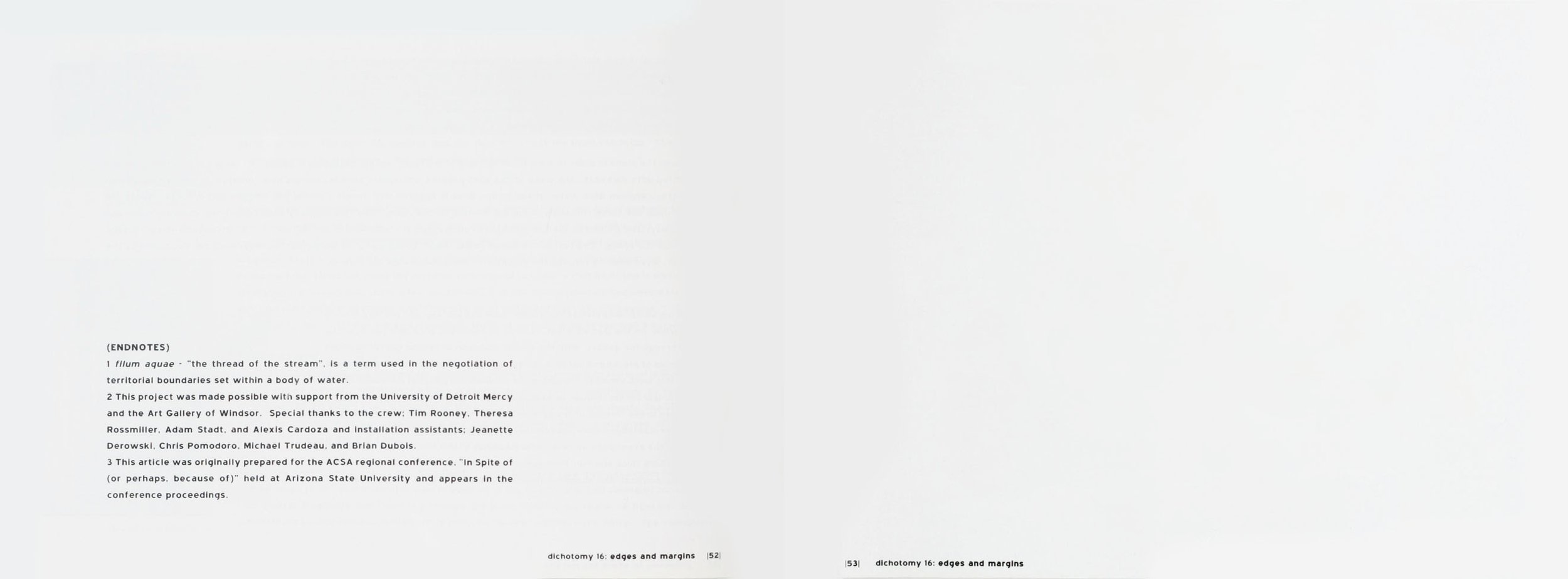
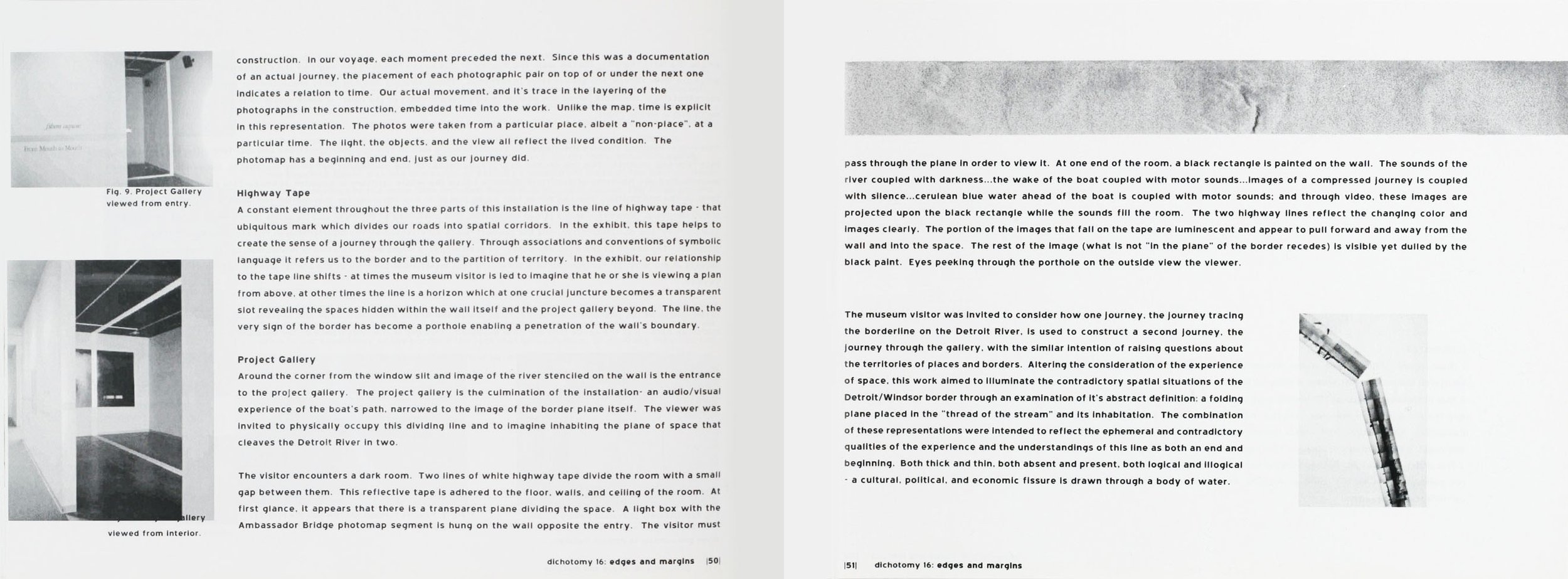
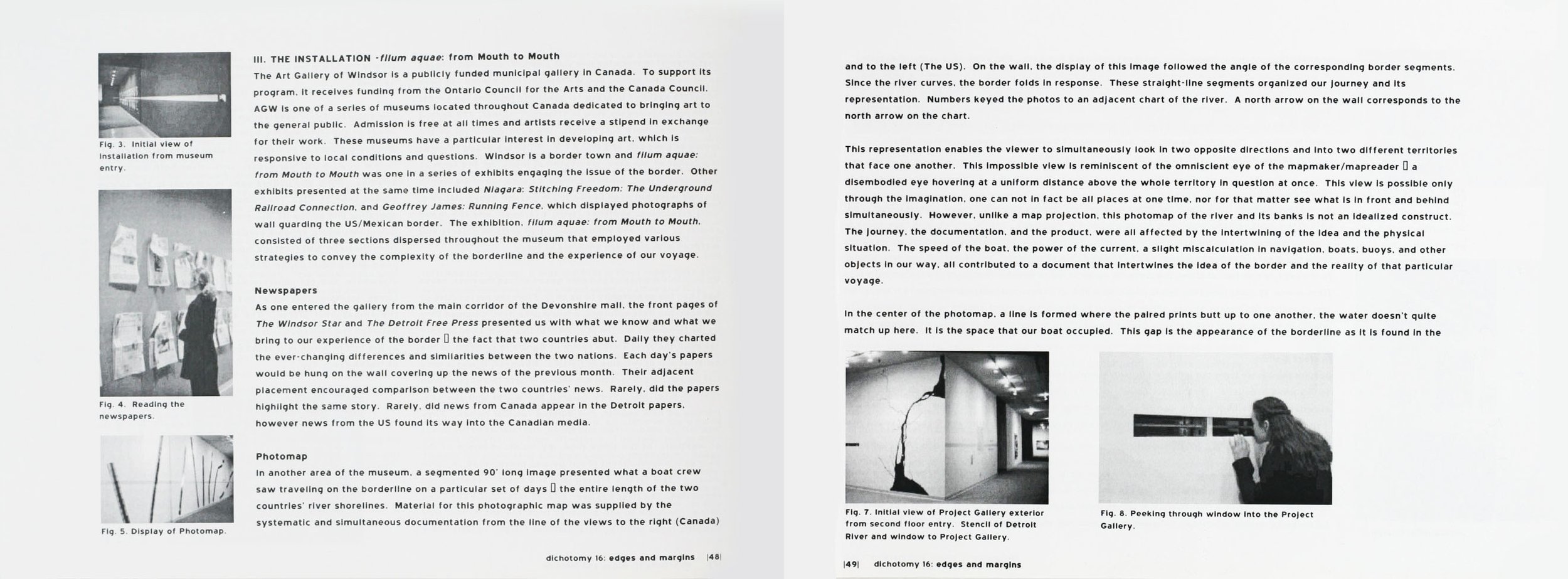
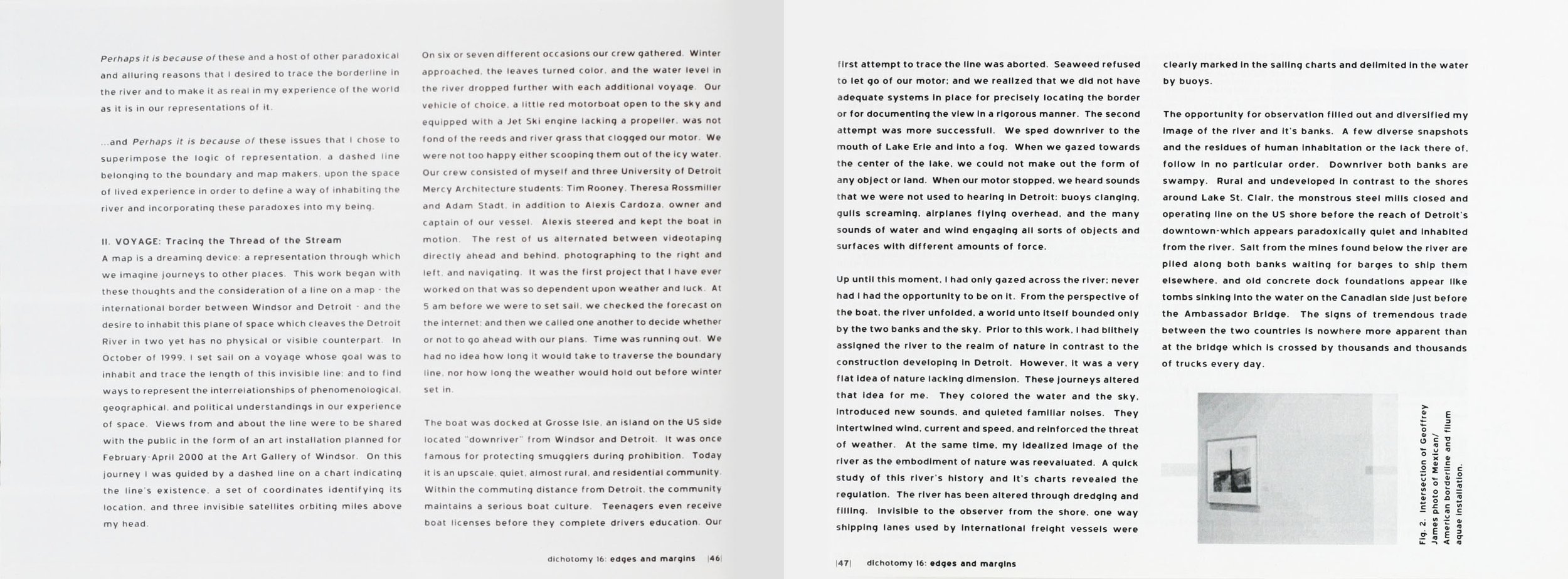

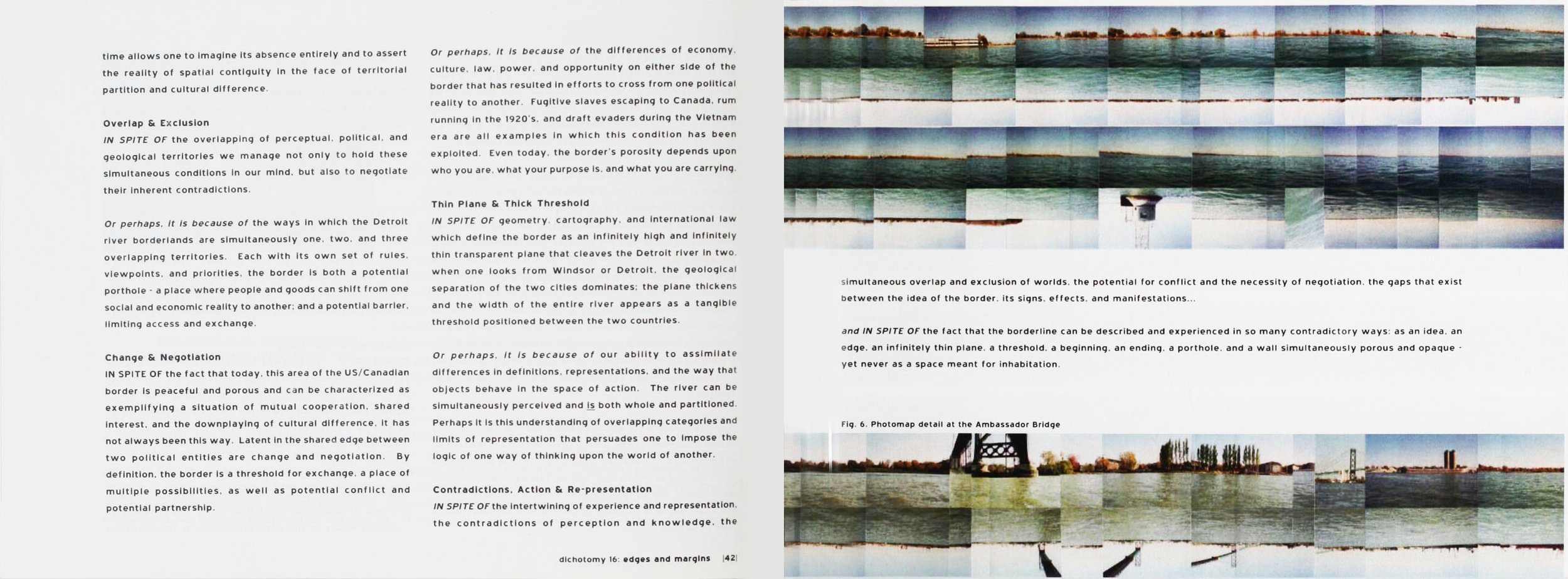


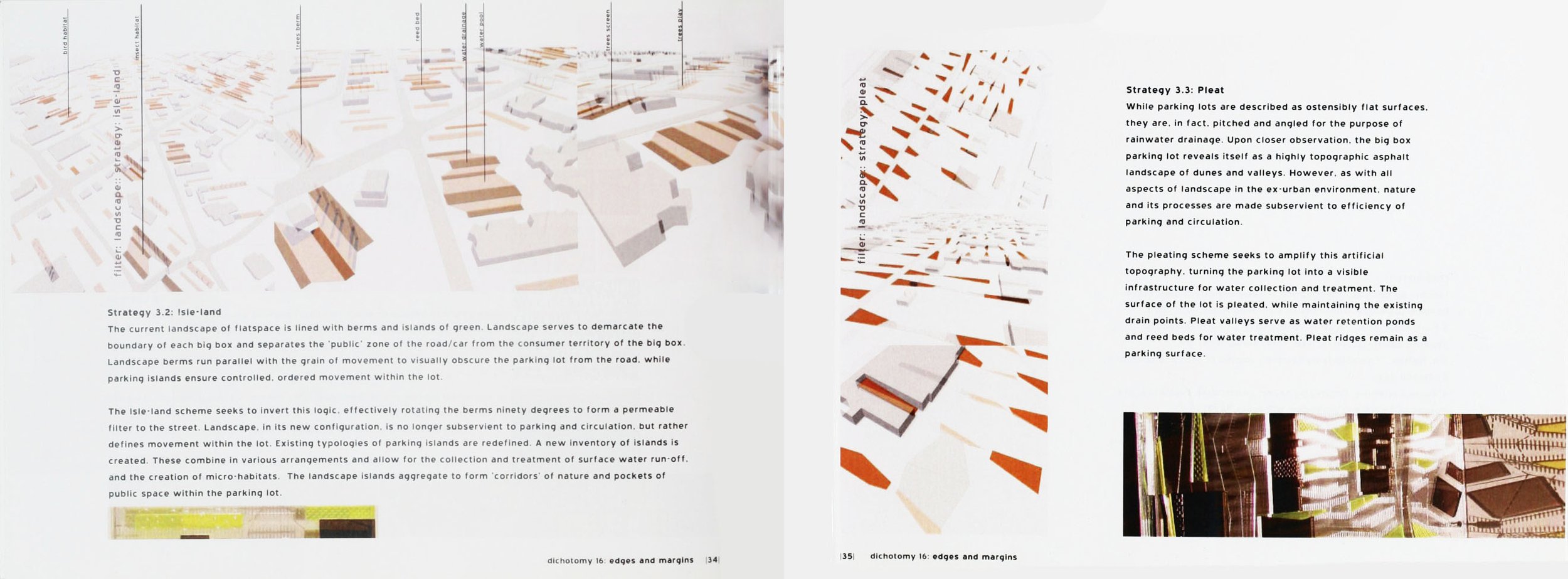

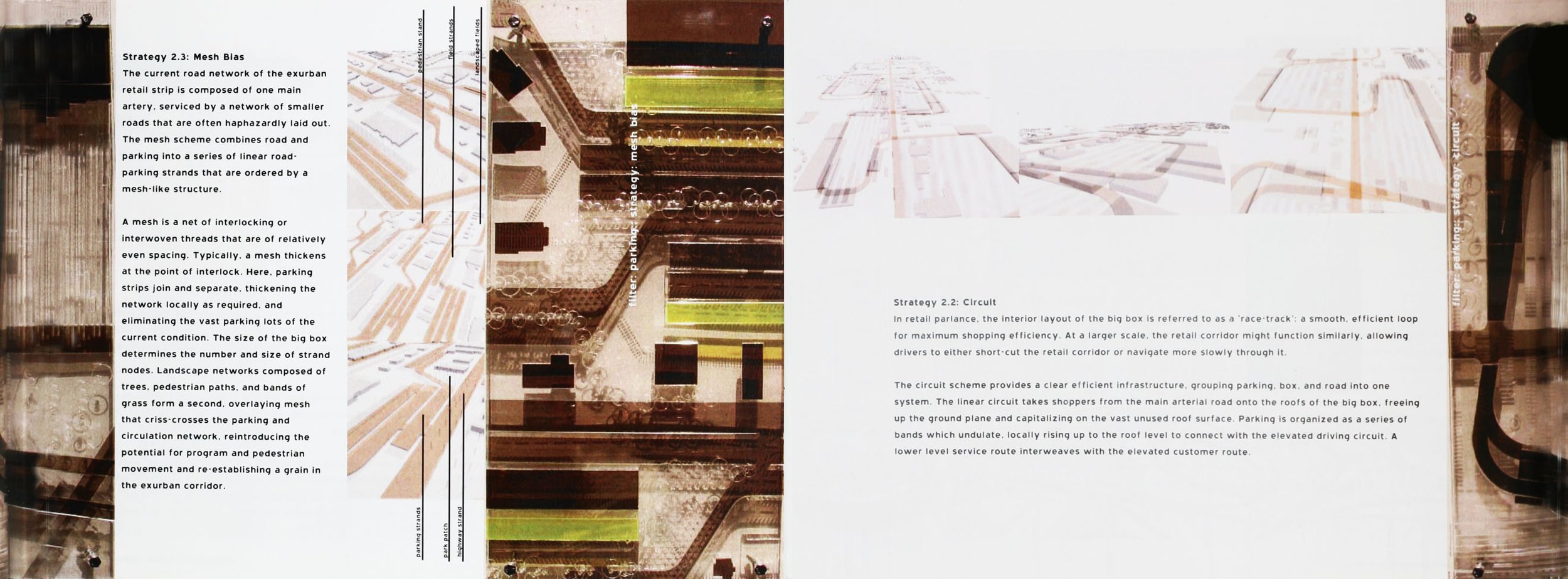



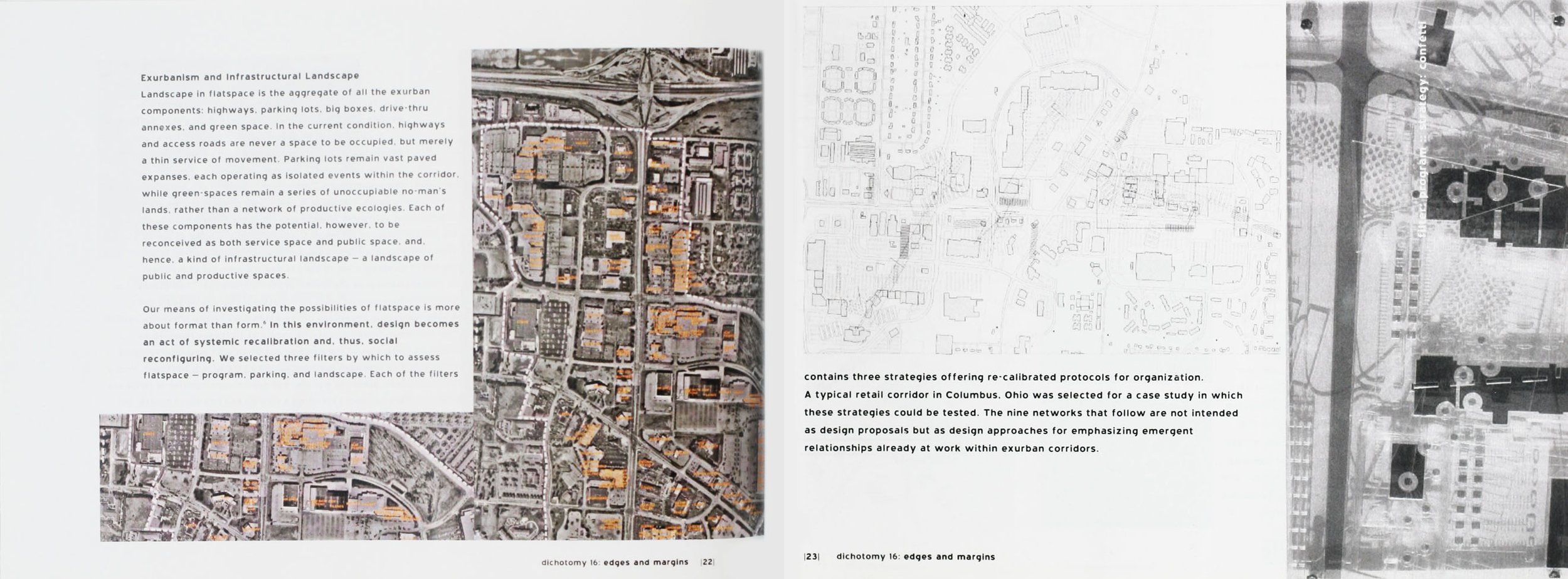





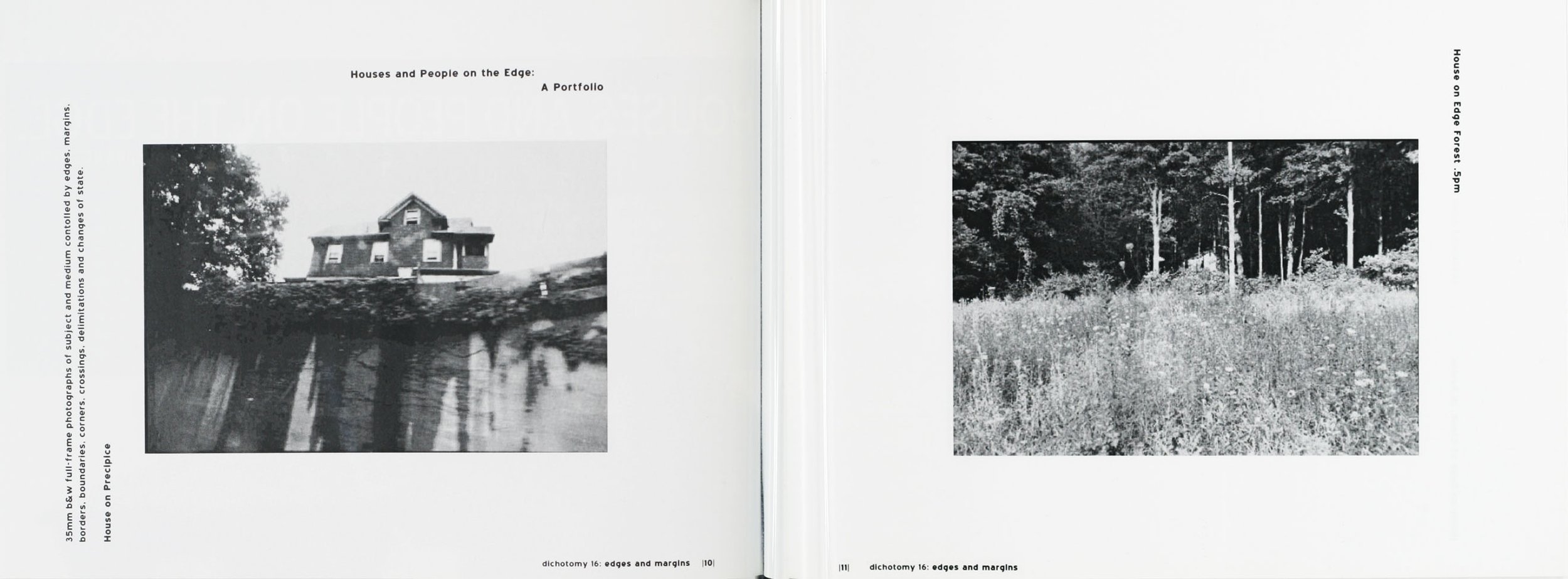






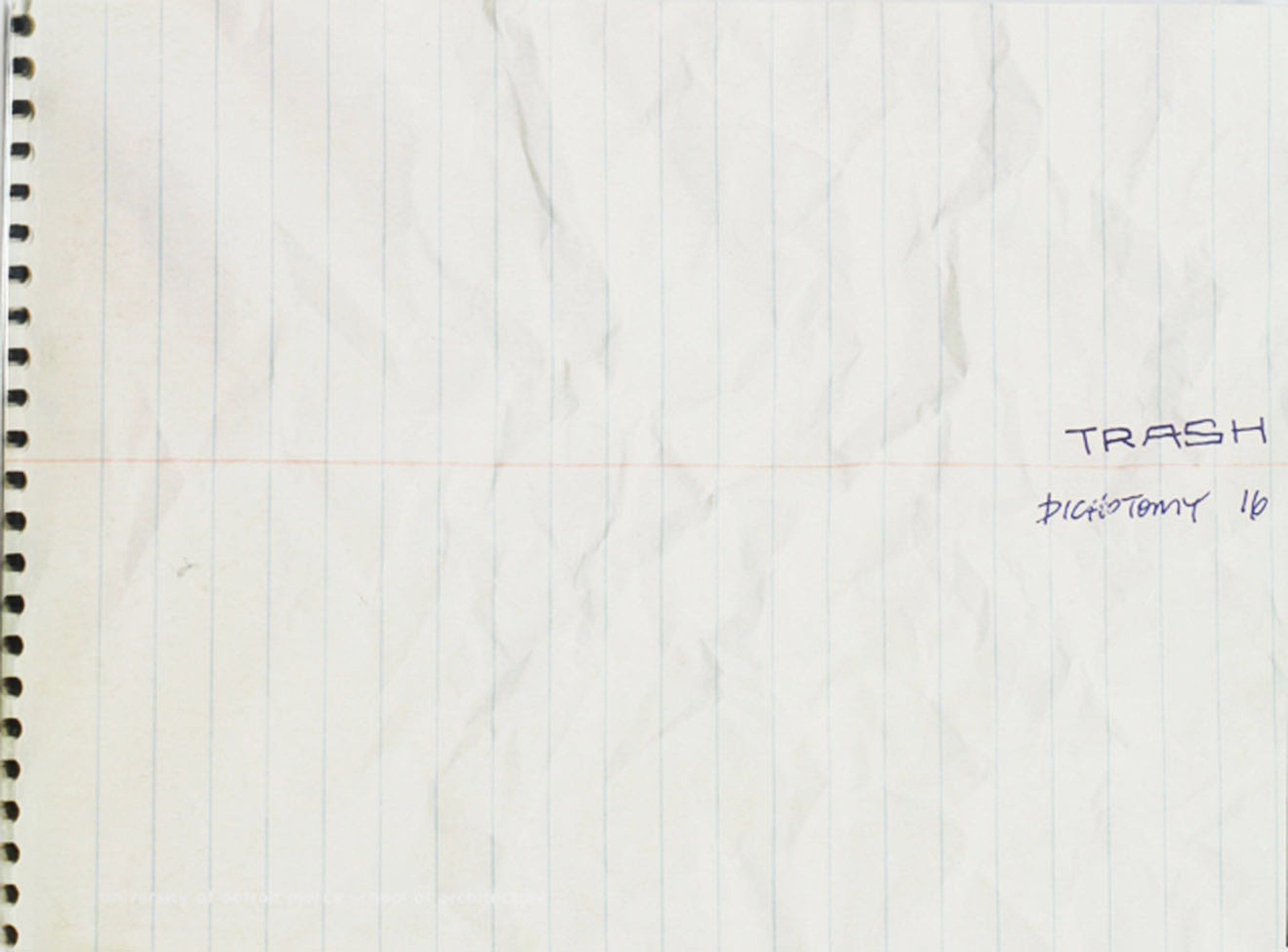
DICHOTOMY 16: TRASH
This issue marks a creative alternative to the traditional format of Dichotomy. Dichotomy 16 is a double issue, tackling two very different topics in architectural discourse: trash, and edges and margins.
The issue on this side, Trash, will certainly provoke interest. As both our awareness and understanding of ecology grows, we must also consider those objects and places we have already discarded. We are also concerned with those things that we produce as waste. David KoukaI’s Detroit Detritus, explains the phenomenology of litter and abandonment, and characterizes its daily interaction with our consciousness - as it applies to the physical scale of architecture, place, and city. Found In Translation: The Hunt for an Absent Landscape is Beth Blostein’s proposal for re-integration of trashed landscape at a quarry site. Implementing the application of ecology to the site, she introduces a second landscape which will interact with the existing, helping to mend the scars of human influence.
Contributor
David Koukal: DETROIT DETRITUS
Beth Blostein: FOUND IN TRANSLATION: THE HUNT FOR AN ABSENT LANDSCAPE
Dan Faoro: CONTEMPORARY MOVEMENT: EXAMINING THE USE OF MATERIALS IN ARCHITECTURE AND THE VISUAL ARTS
Michael Ermann: SHIFTING EDGES: BEACH TOWN URBANISM
Ronit Eisenbach: FILUM AQUAE: THE THREAD OF THE STREAM
Lateral Architecture: FLATSPACE: NINE NETWORKS OF INFRASTRUCTURAL LANDSCAPE
Barabara Rosenthal: HOUSES AND PEOPLE ON THE EDGE
Contemporary Movements: Examining the Use of Materials in Architecture and the Visual Arts defines the many notions of materials and culture. Dan Faoro outlines much of the cultural influence on the subject as well as the many historical responses to materials including those regarded as trash. He also delves into other topics such as recycling, re-use, and adaptation as they apply both to architecture and society as a whole, providing a strong basis for knowledge and application of sustainable concepts. From pizza boxes to strip mines, each of these pieces provides new understanding that we may apply to our future decisions in the realm of trash and waste.
The reverse side, Edges and Margins, thoughtfully composes a series of submissions interpreting the condition of edge and their adjacent bodies of space. These authors attempt to organize or define these complex conditions that define our physical landscape, providing insight into understanding what is particularly interesting about this context. Our physical and conscious interaction with edges and their margins, as well as our attempts to analyze and reorder these spaces, are fascinating dialogues.
Team
Editors: Aaron Taylor, Jana Cephas, Matthew Prouty
Copy editor: Nick Liadis
Graphic design: Jason Wah
Editorial staff: Sinisa Simic, Rachel Yoon-Meyers, Mais Karadsheh, Amy Szewczyk, Andrea Baird, Jonathan Wehri
Faculty advisor: Associate Professor Julie Ju-Youn Kim
